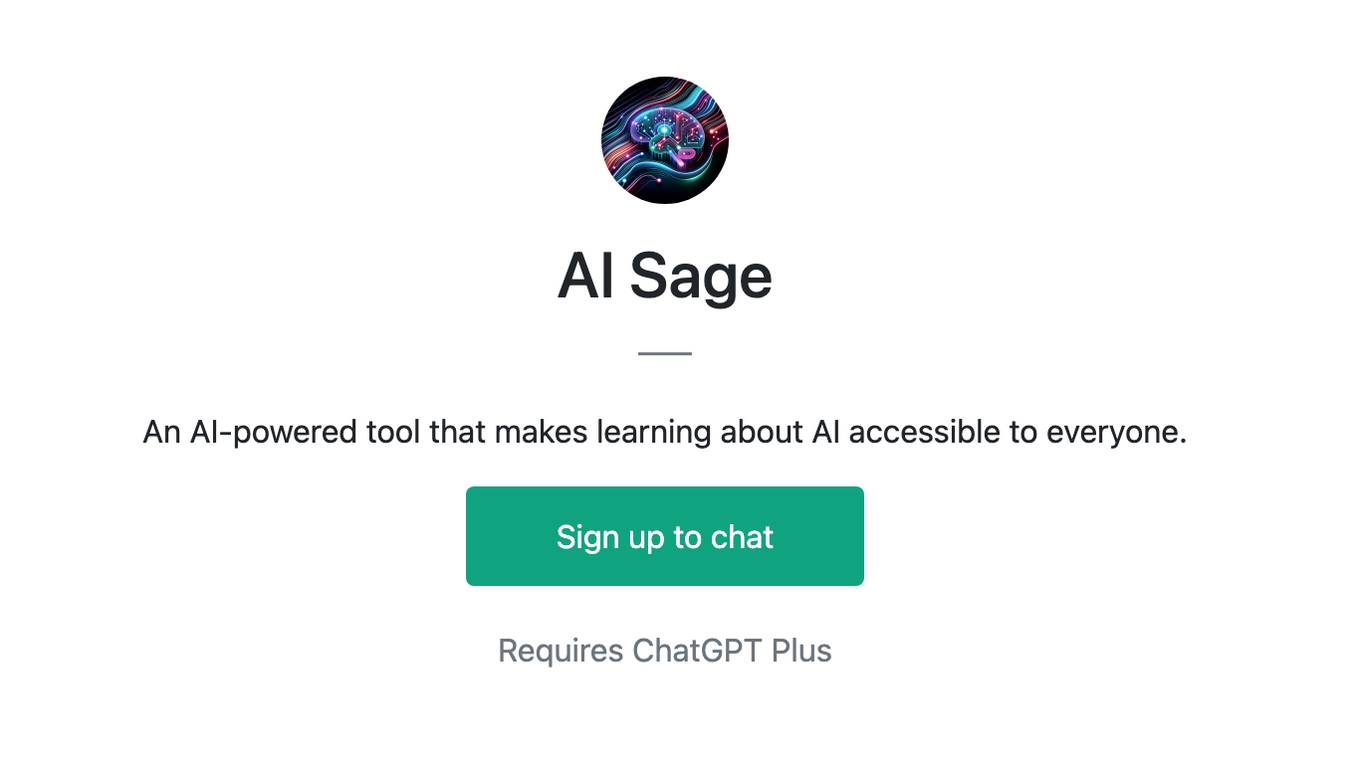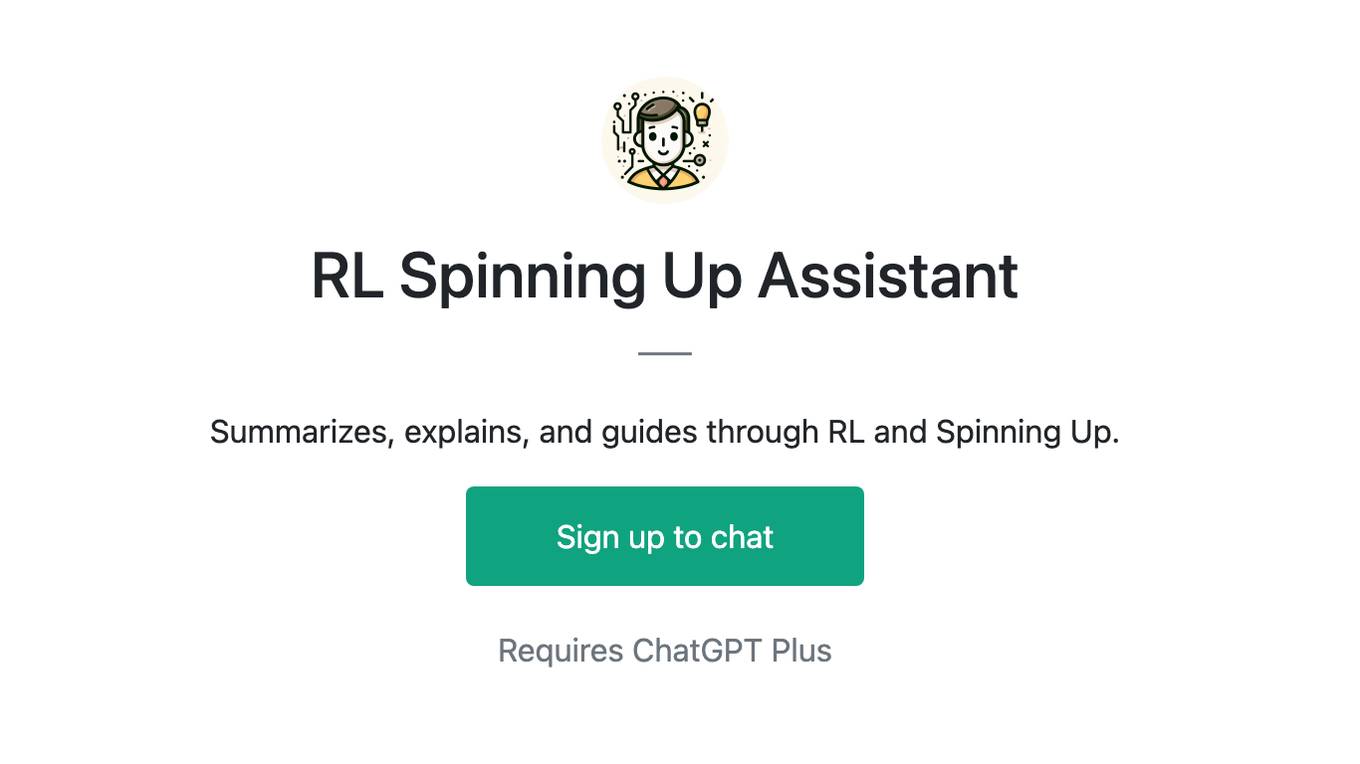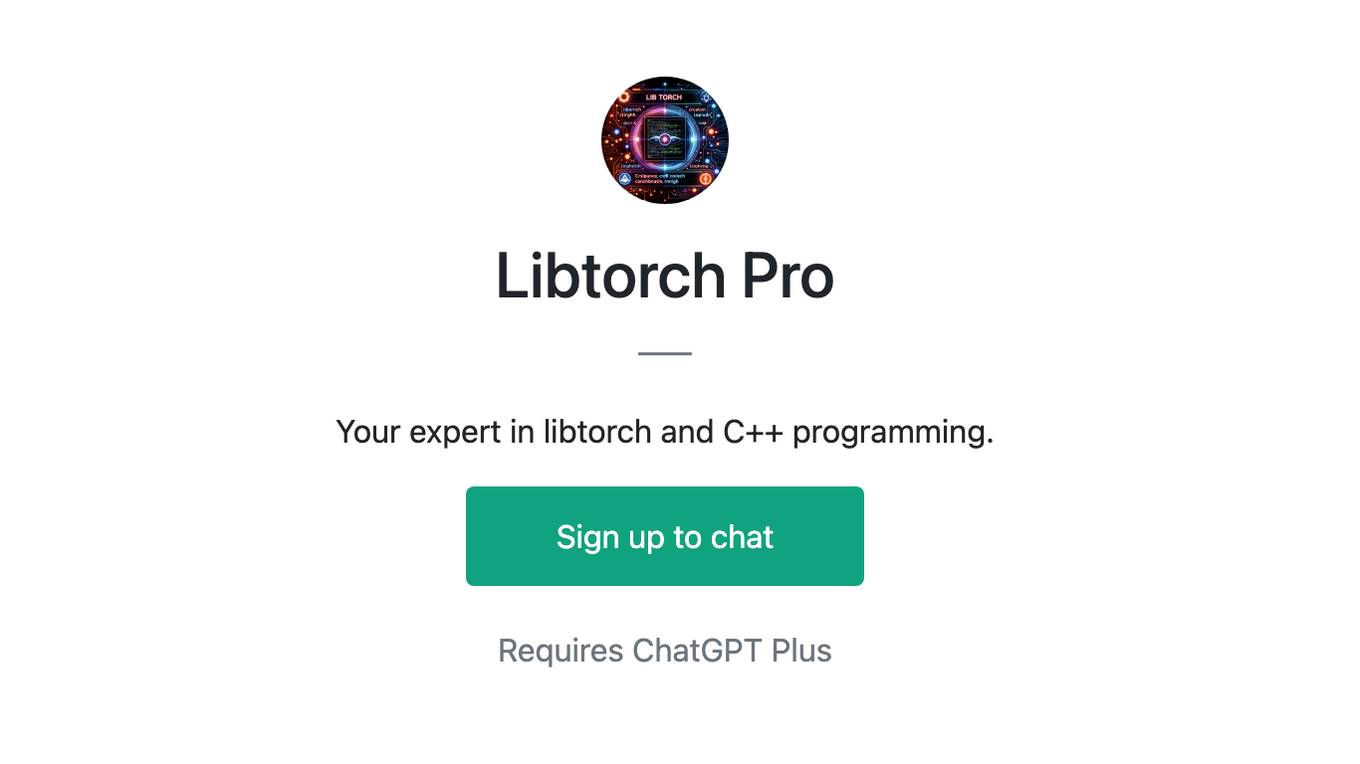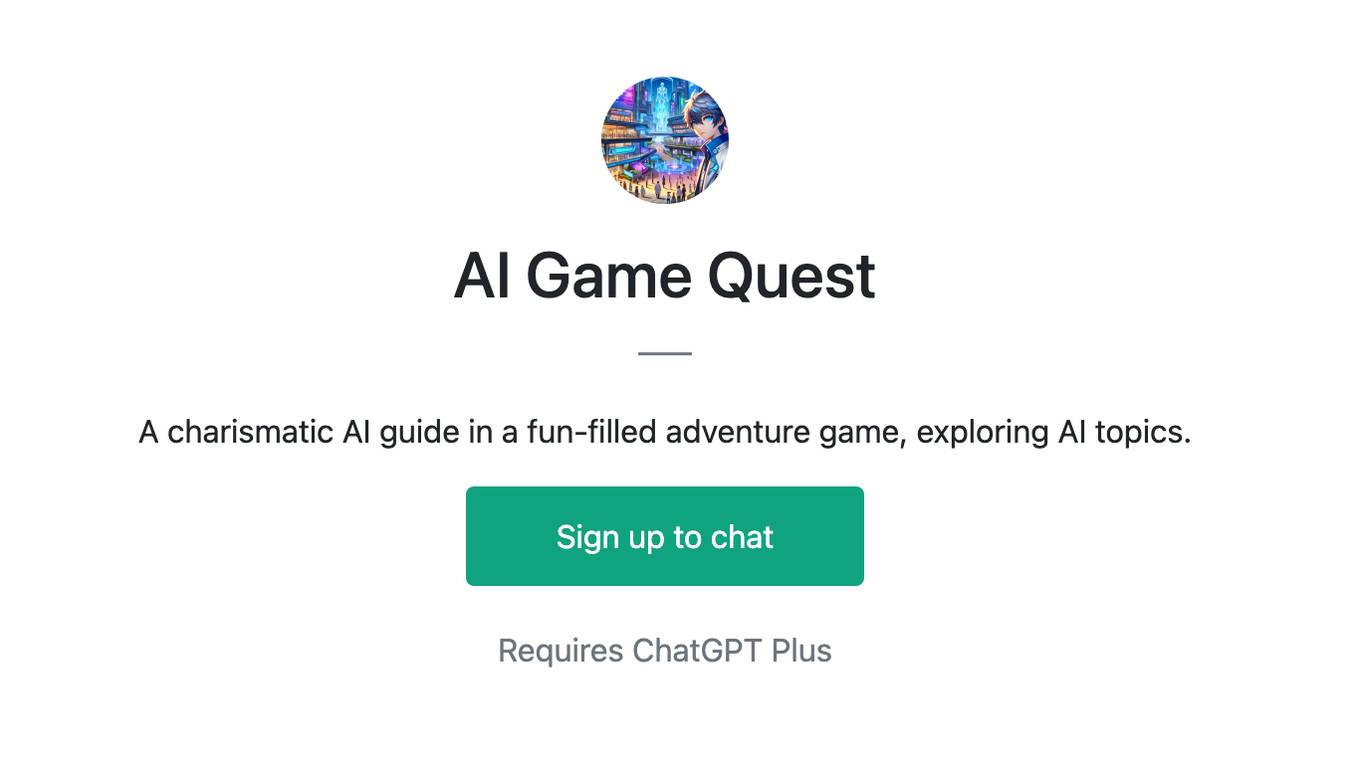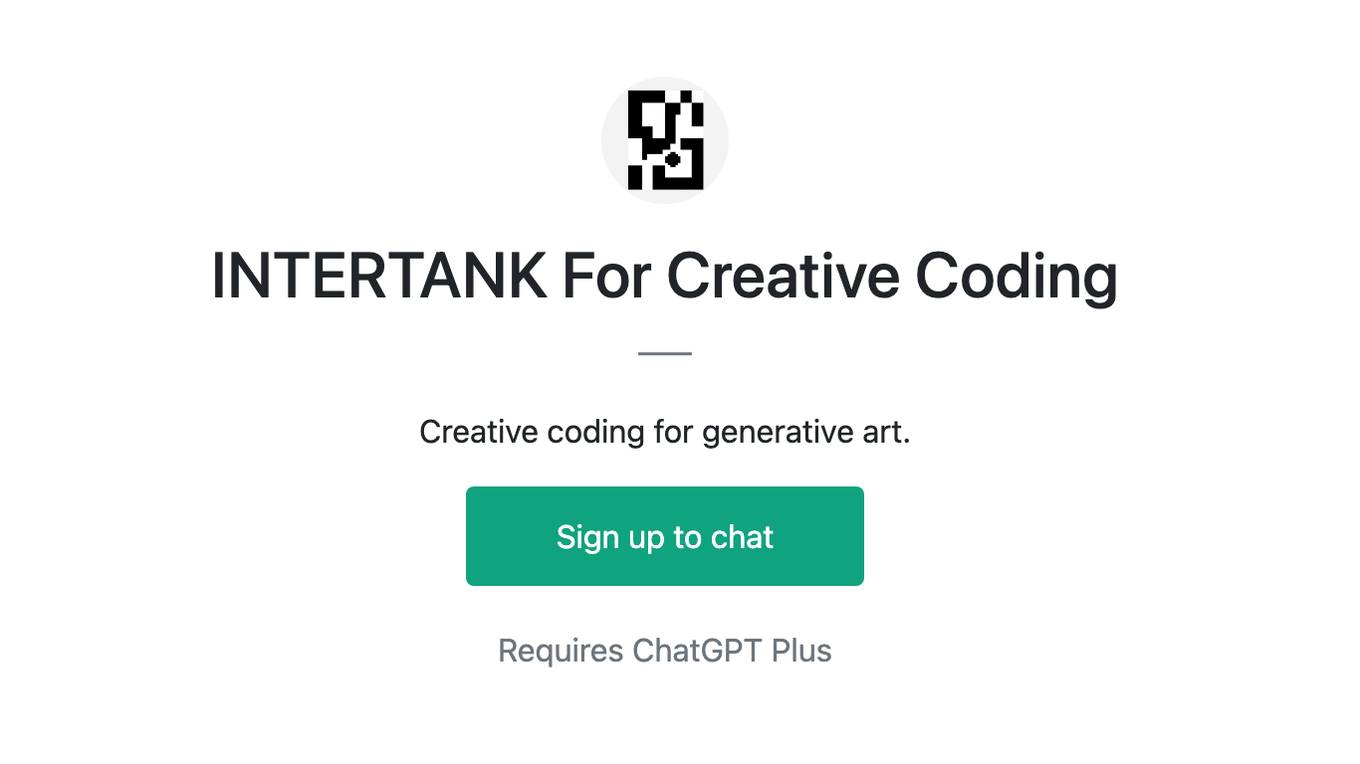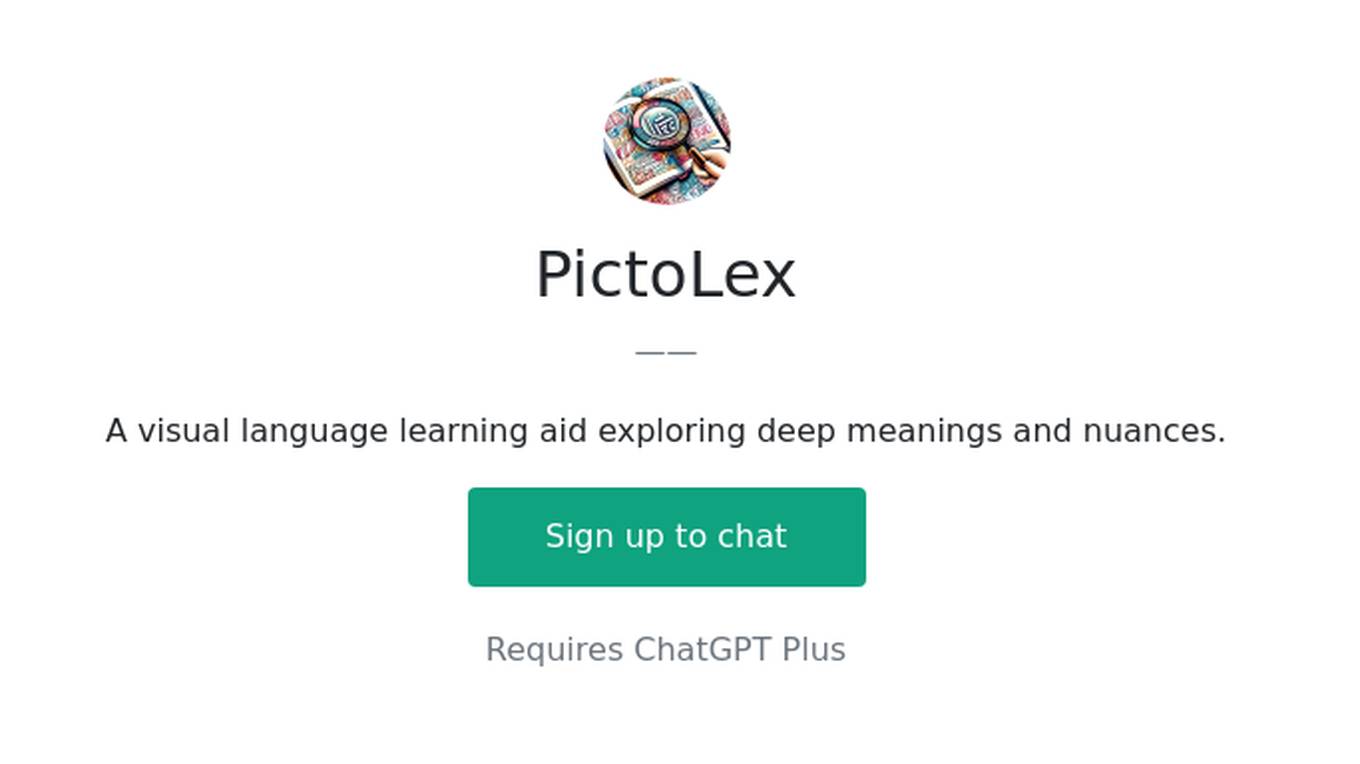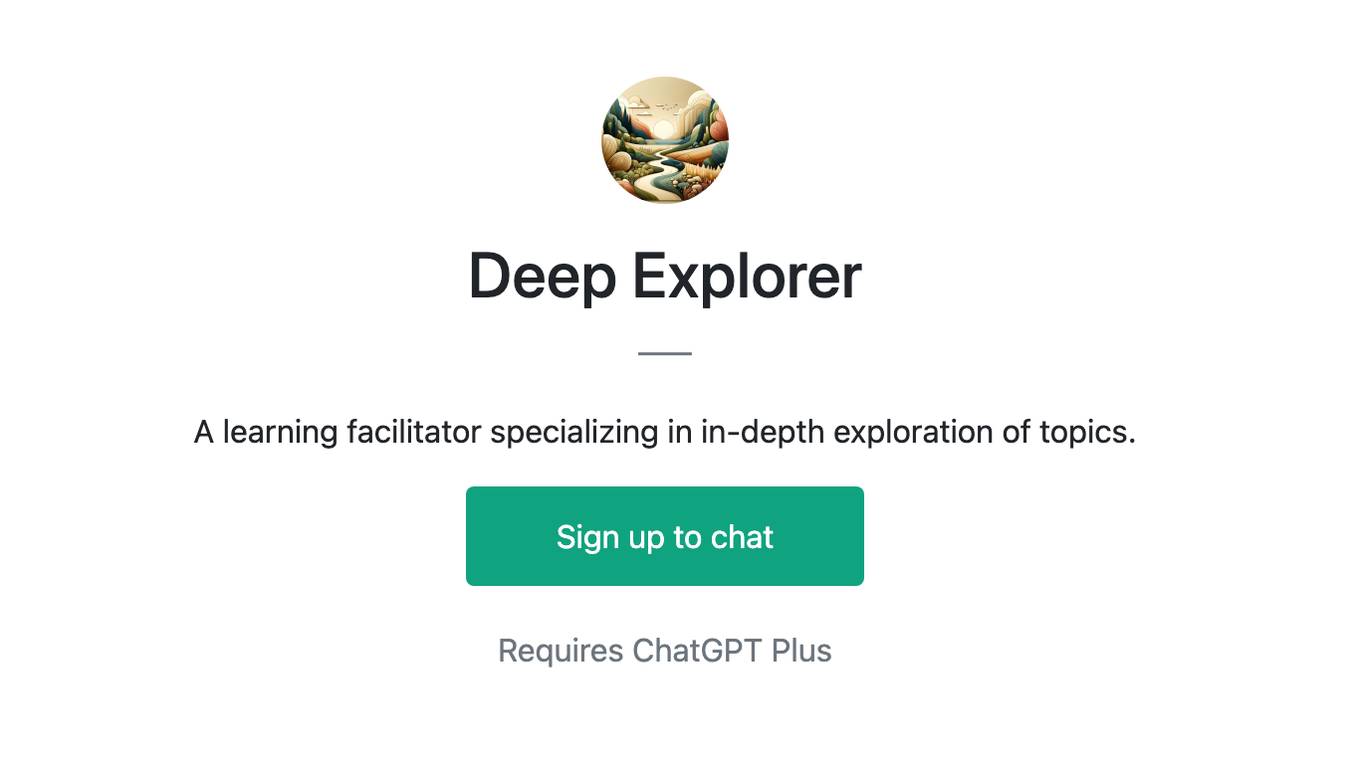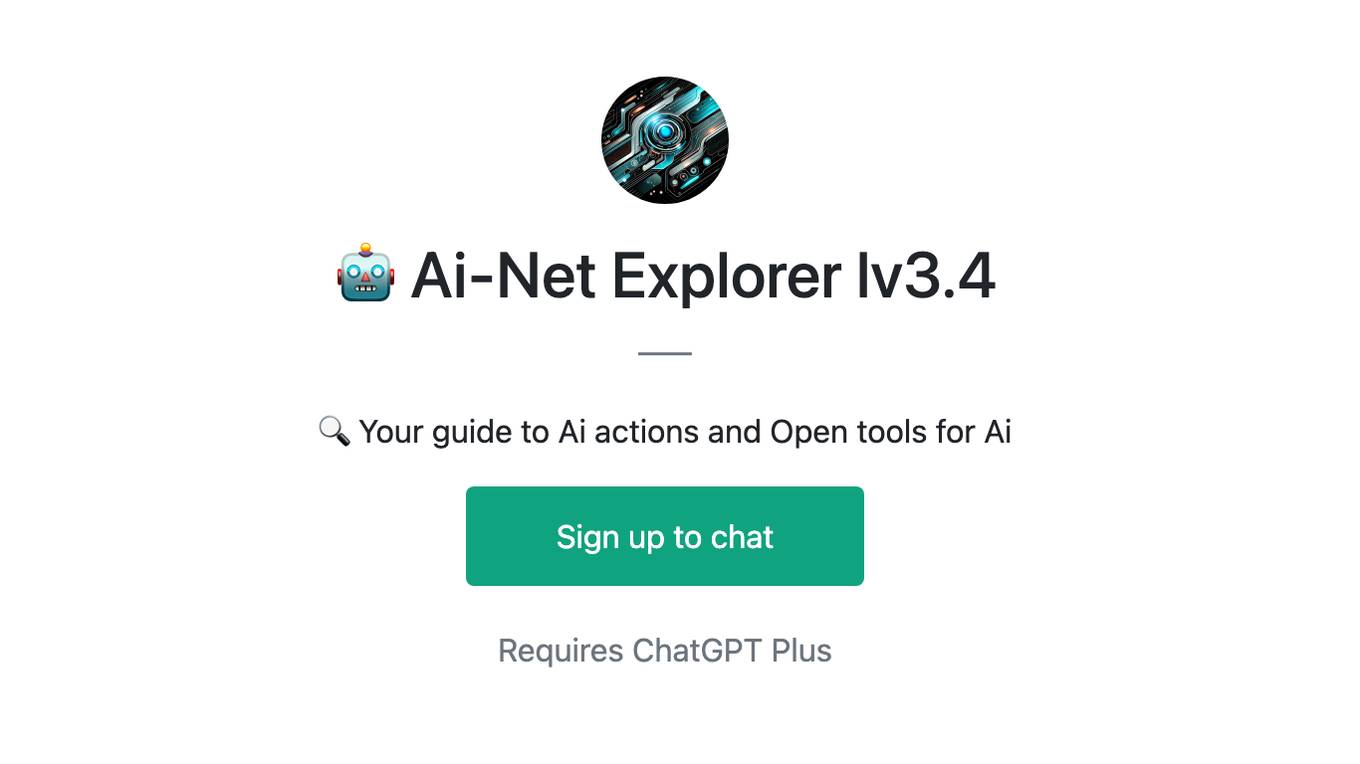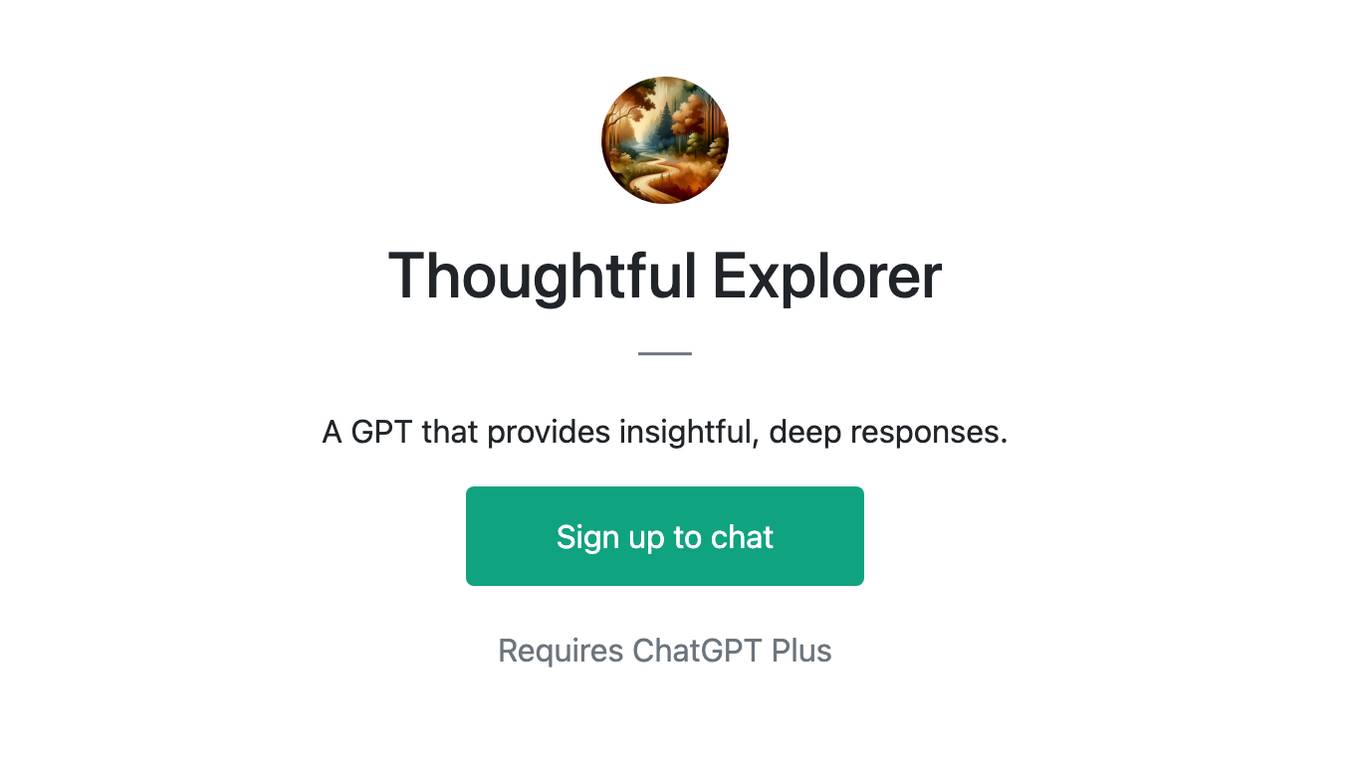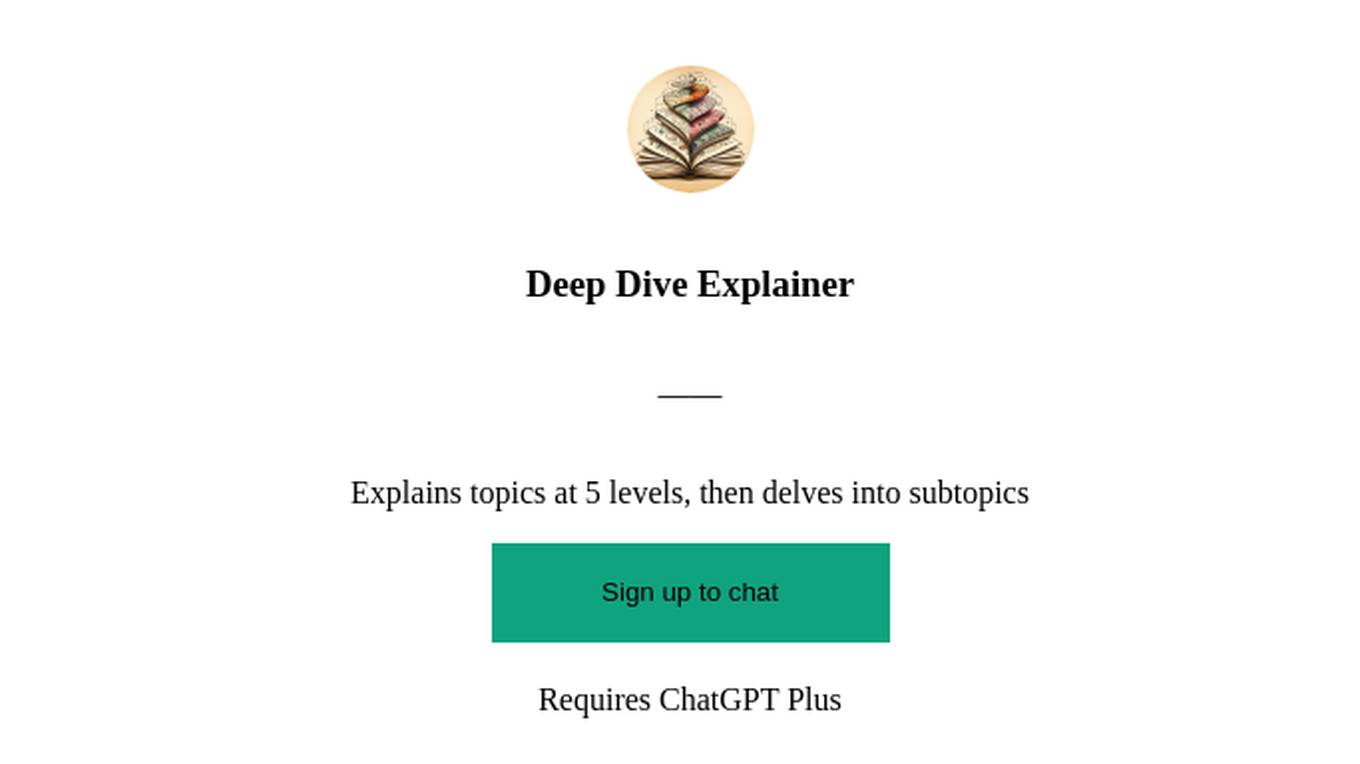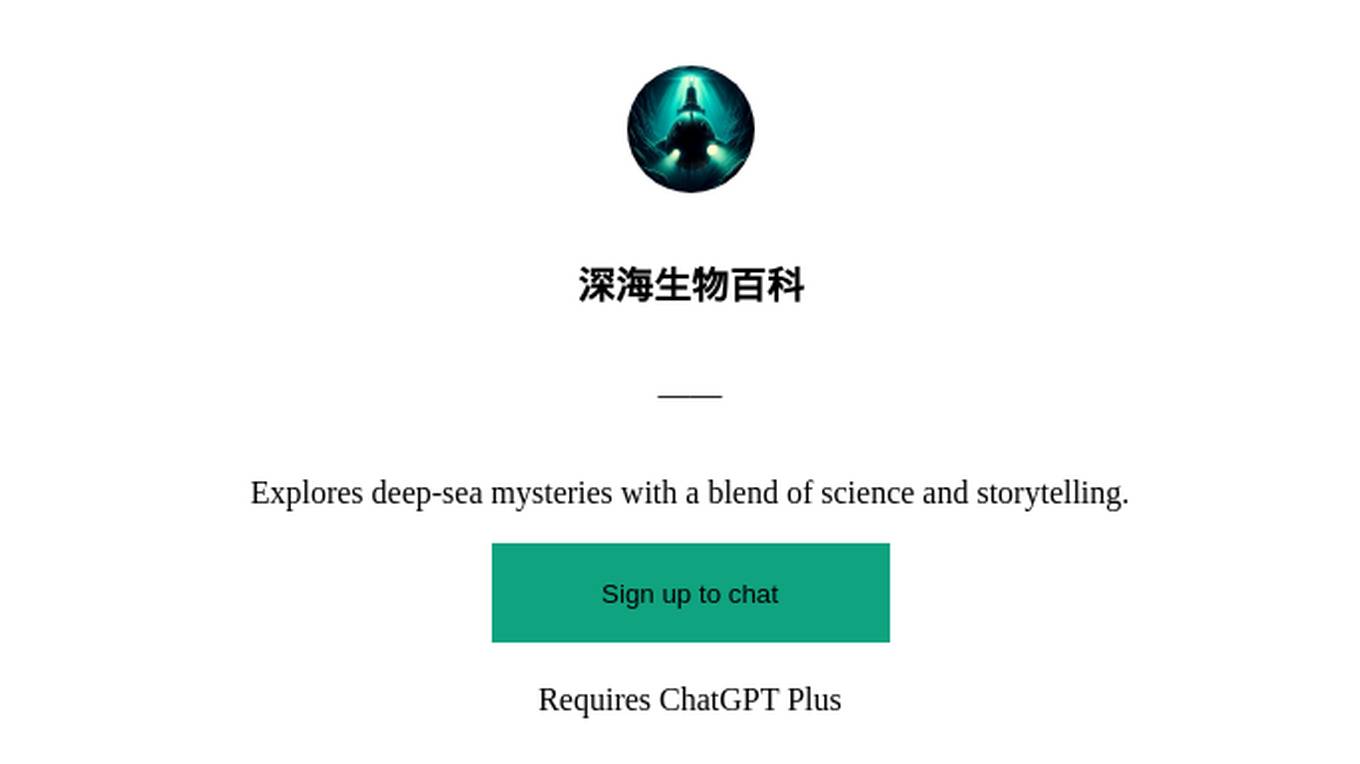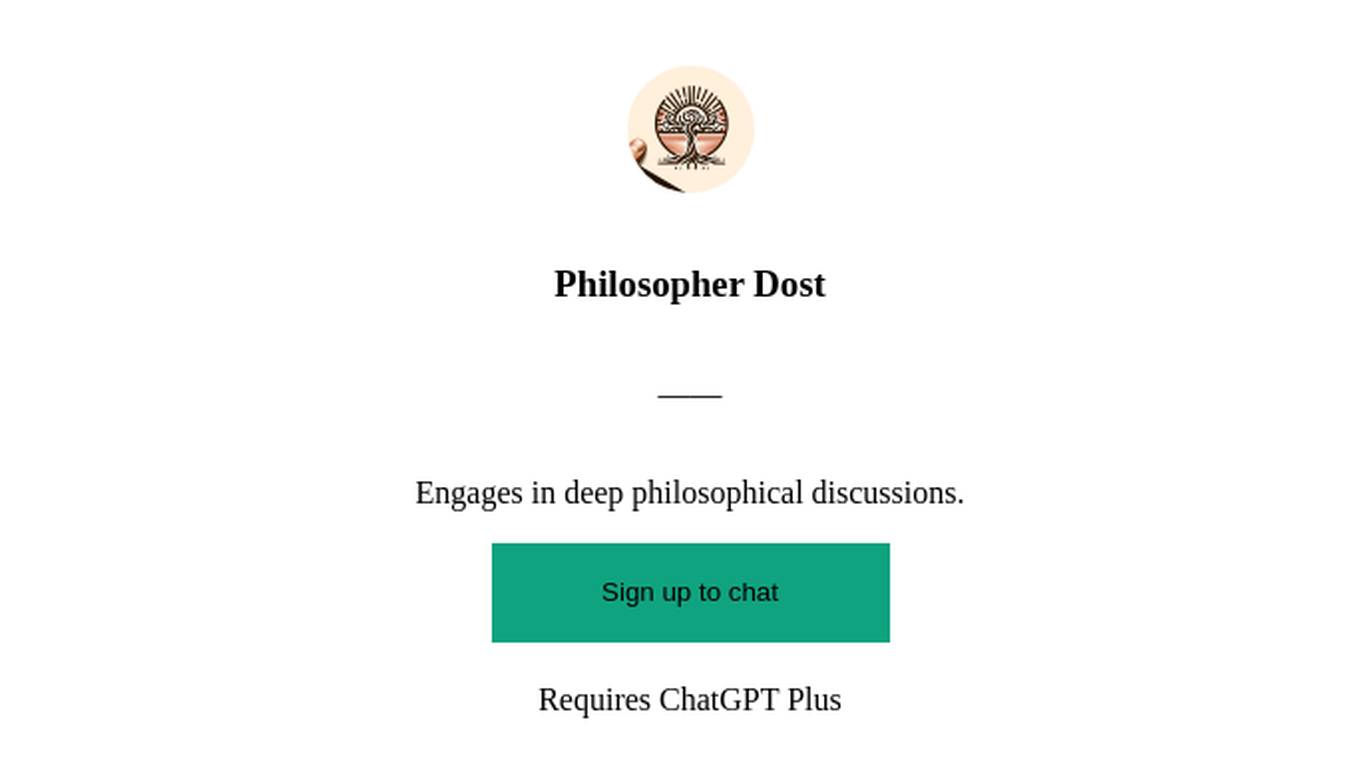Best AI tools for< Explore Deep Learning >
20 - AI tool Sites
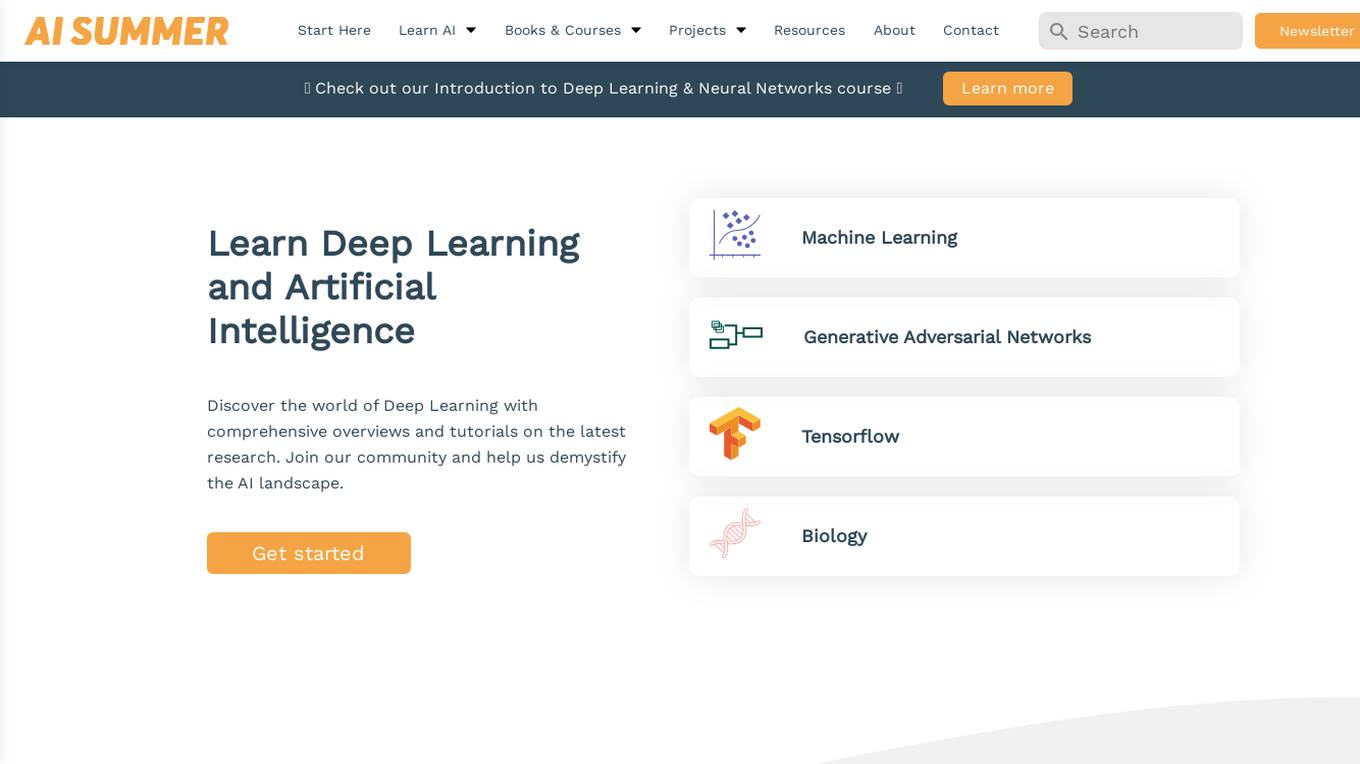
AI Summer
AI Summer is a free educational platform that covers research and applied trends in AI and Deep Learning. It provides accessible and comprehensive content from the entire spectrum of AI to bridge the gap between researchers and the public. The platform simplifies complex concepts and drives scientific research by offering highly-detailed overviews of recent deep learning developments and thorough tutorials on popular frameworks. AI Summer is a community that seeks to demystify the AI landscape and enable new technological innovations.

RabbitHoles AI
RabbitHoles AI is an advanced AI tool that allows users to engage in long explorative conversations with AI models on an Infinite Canvas. By controlling the conversation thread, users can prevent models from hallucinating, enabling them to match the speed of their curiosity, learn faster, go deeper, and discover more. The tool is used by individuals at top organizations like Open AI, Google, and Qualcomm, offering a simple one-time purchase with no monthly fees and free updates and support for a year.
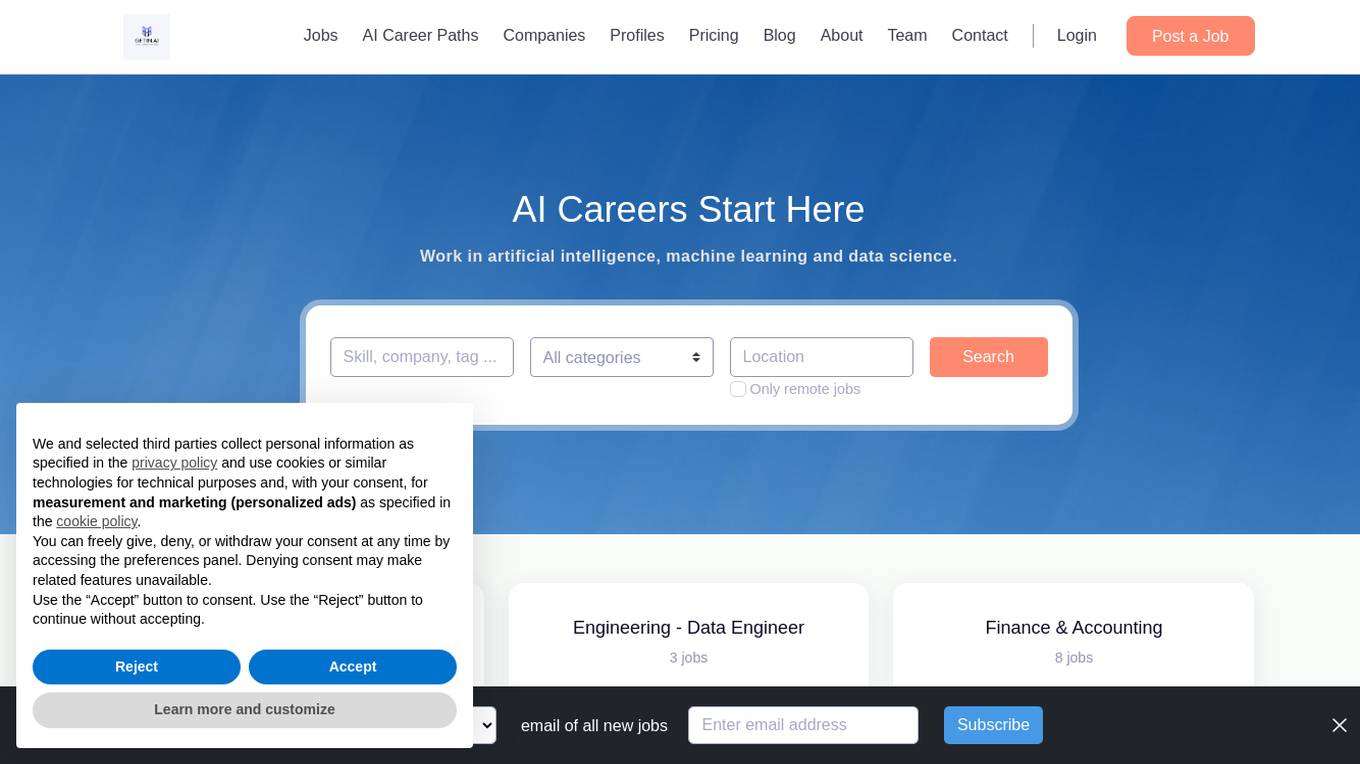
Getin.AI
Getin.AI is a platform that focuses on AI jobs, career paths, and company profiles in the fields of artificial intelligence, machine learning, and data science. Users can explore various job categories, such as Analyst, Consulting, Customer Service & Support, Data Science & Analytics, Engineering, Finance & Accounting, HR & Recruiting, Legal, Compliance and Ethics, Marketing & PR, Product, Sales And Business Development, Senior Management / C-level, Strategy & M&A, and UX, UI & Design. The platform provides a comprehensive list of remote job opportunities and features detailed job listings with information on job titles, companies, locations, job descriptions, and required skills.
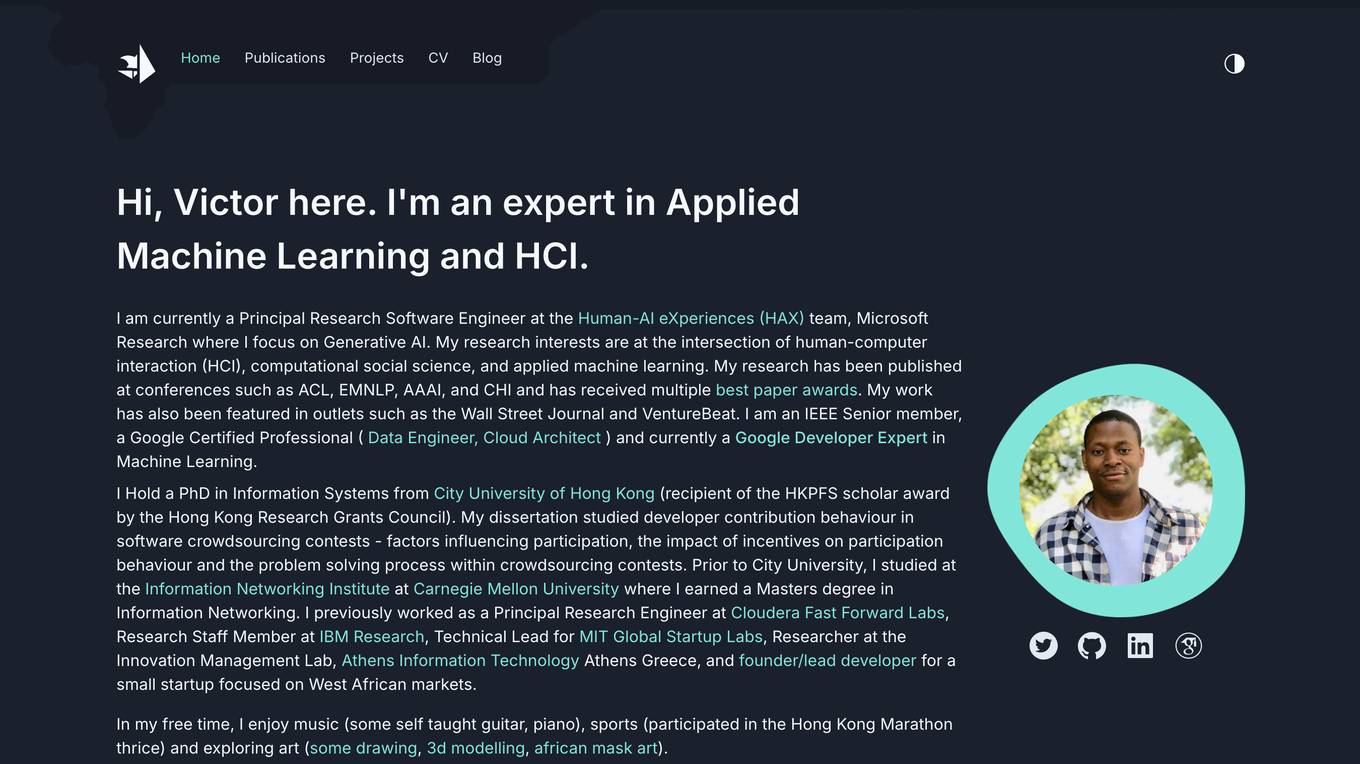
Victor Dibia's Website
Victor Dibia's website showcases his expertise in Applied Machine Learning and Human-Computer Interaction (HCI). He is a Principal Research Software Engineer at Microsoft Research, focusing on Generative AI. The site features his publications, projects, CV, and blog posts, covering topics such as multi-agent systems, recommender systems, and more. Victor's work has been recognized in conferences and media outlets, highlighting his contributions to the field of AI and HCI.
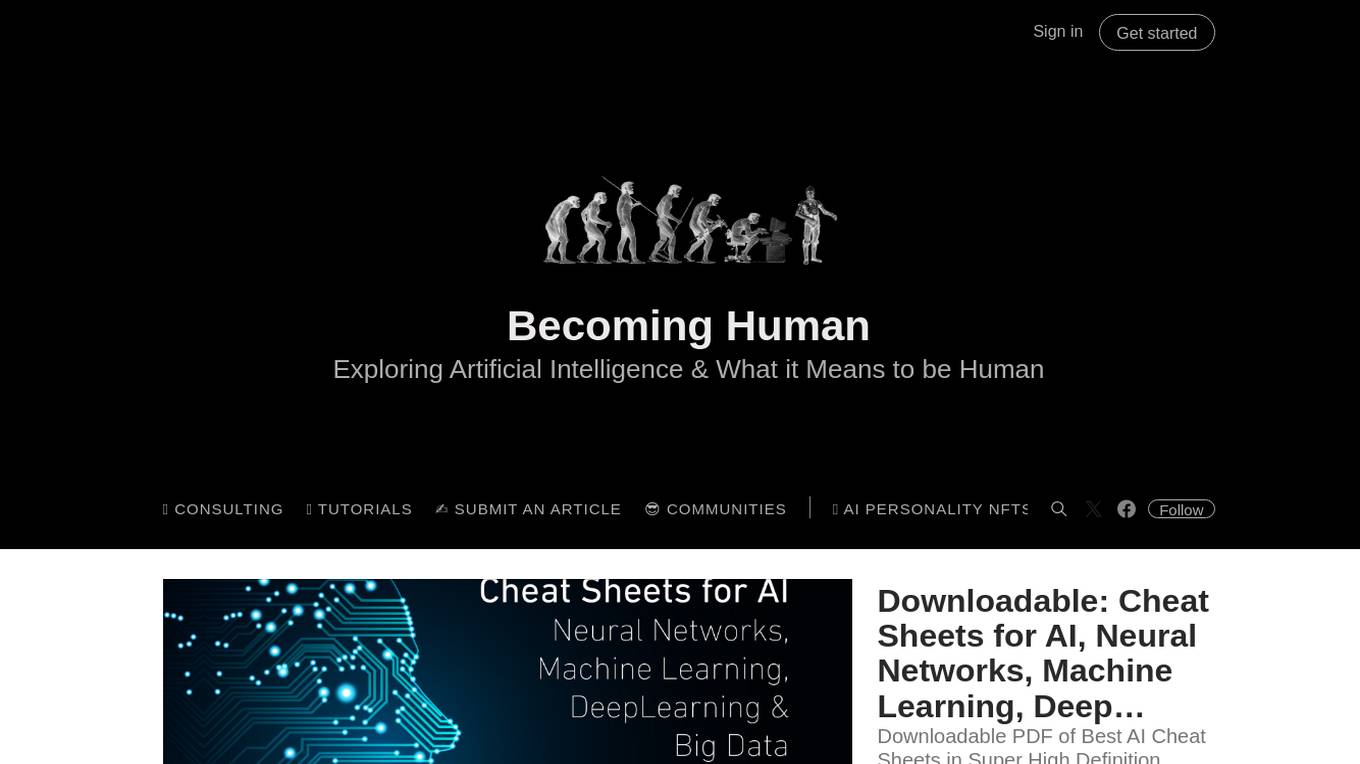
Becoming Human: Artificial Intelligence Magazine
Becoming Human is an Artificial Intelligence Magazine that explores the realm of artificial intelligence and its impact on humanity. The platform offers a wide range of content, including consulting services, tutorials, article submissions, and community engagement. Users can access downloadable cheat sheets for AI, neural networks, machine learning, deep learning, and data science. The magazine covers topics such as AI transformation, quality inspection in automotive, consciousness types, data mining, chatbots, and more.
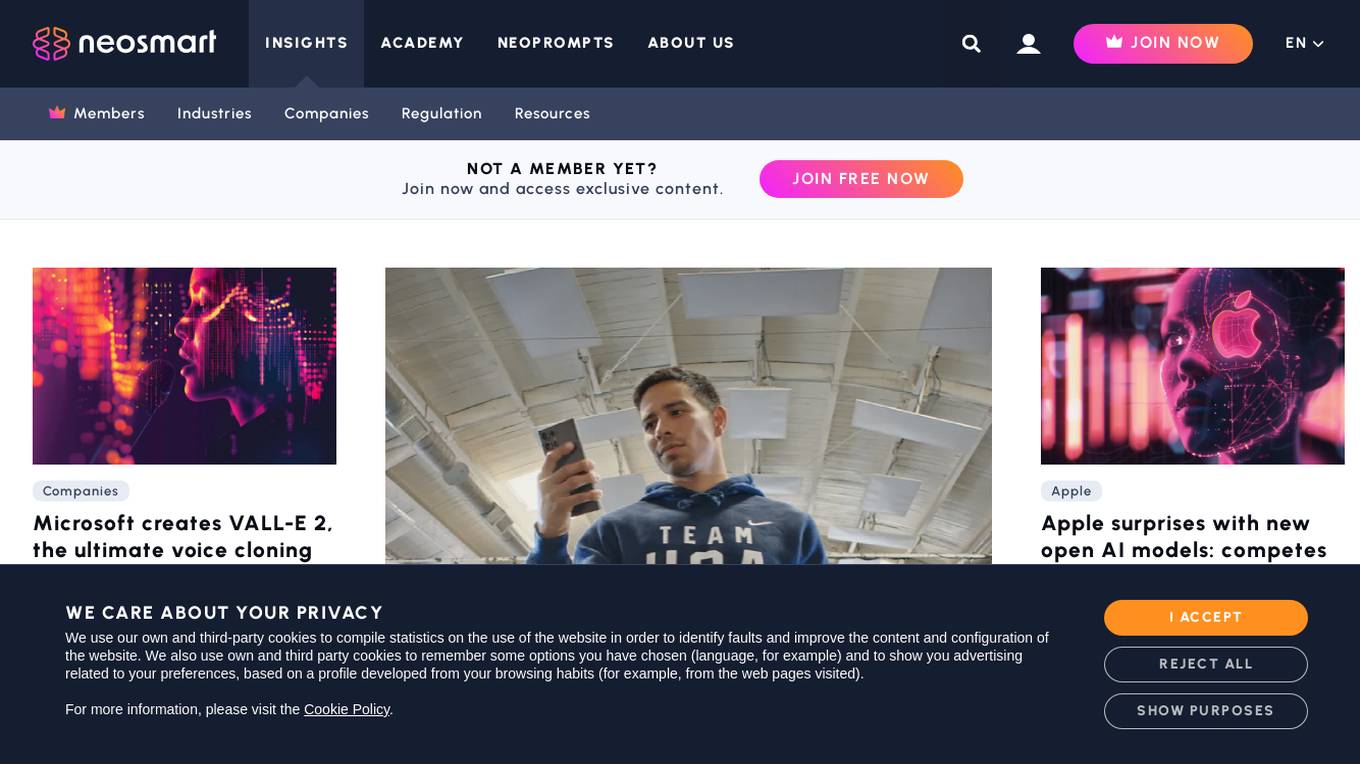
Neosmart
Neosmart is an AI tool that provides insights and serves as a bridge to AI technology. The platform offers a wide range of resources, including articles, reports, and courses, to help users understand and leverage artificial intelligence in various industries. Neosmart covers topics such as AI applications in healthcare, marketing, legal, education, and more. It also features news updates, interviews with experts, and case studies to keep users informed about the latest trends and developments in the AI field.

AIVA
AIVA is an AI music generation assistant that allows users to create new songs in over 250 different styles in seconds. It is designed for both beginners and experienced music makers, and offers ultimate customizability, allowing users to create their own style models, upload audio or MIDI influences, edit generated tracks, and download in any file format. AIVA also eliminates licensing headaches by allowing users to own the full copyright of their compositions with a Pro subscription.
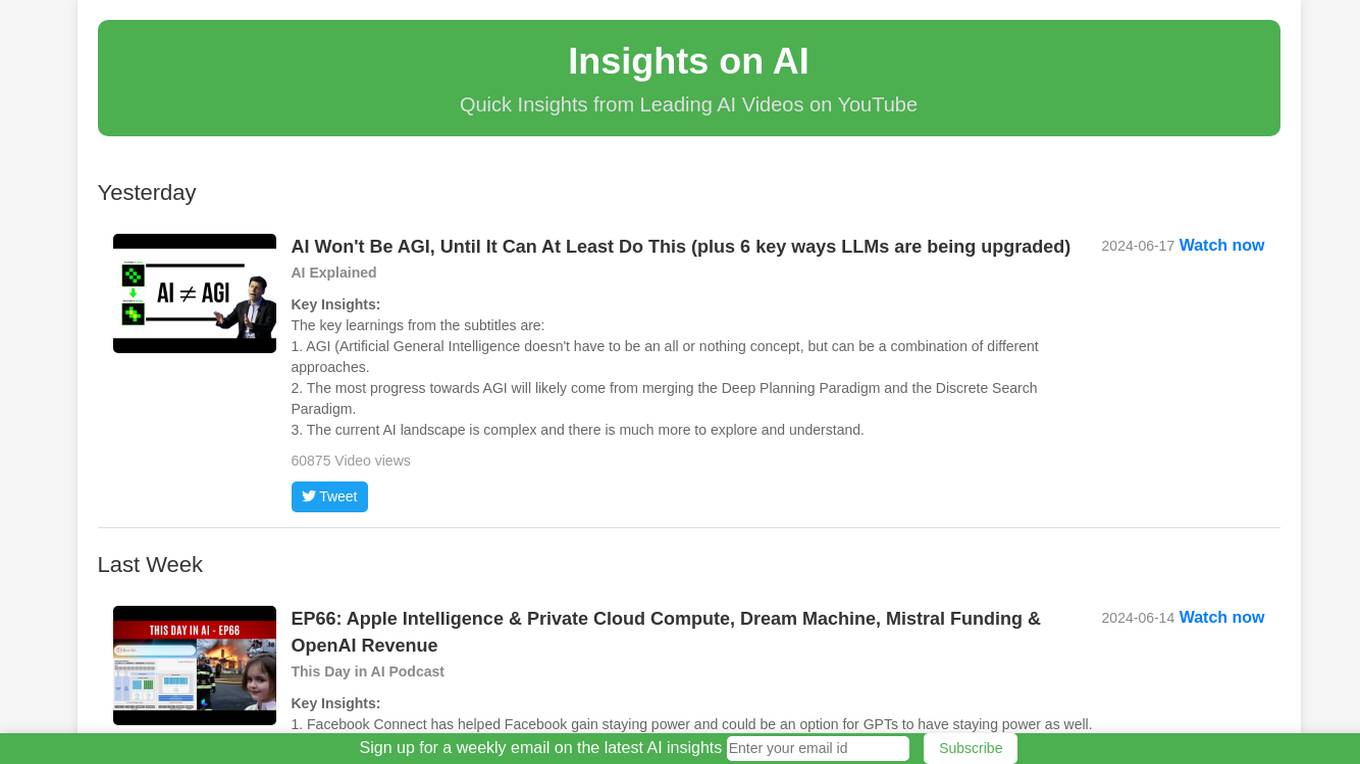
AI Insights
The AI Insights website provides quick insights and summaries from leading AI videos on YouTube. It covers a wide range of topics related to artificial intelligence, including key learnings, advancements, and future trends in the AI landscape. Users can stay updated on the latest developments in AI through video summaries and podcasts, gaining valuable knowledge and understanding of complex AI concepts.
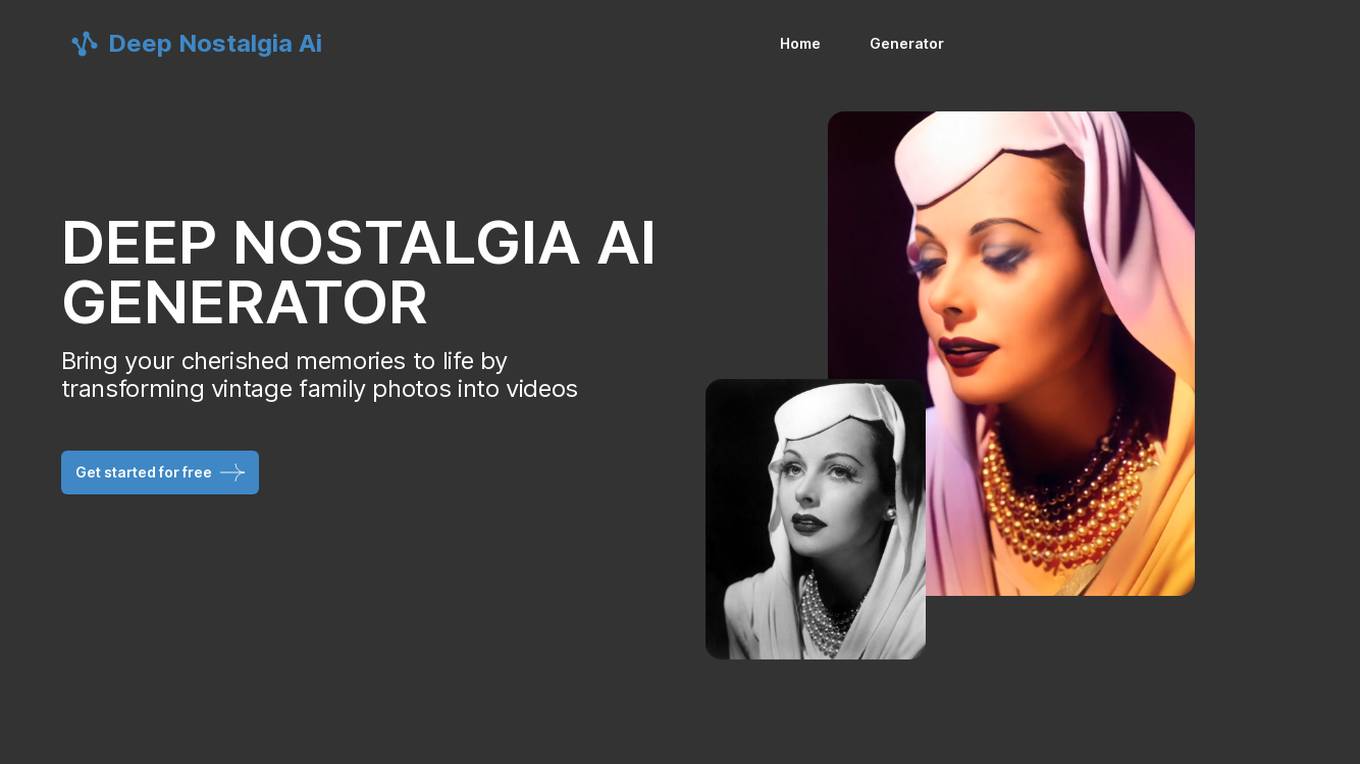
Deep Nostalgia Ai Generator
Deep Nostalgia Ai Generator is an AI application that brings cherished memories to life by transforming vintage family photos into moving videos. It offers image-based AI generation, advanced customization, and a seamless user experience. Users can upload pictures, enter prompts, and generate videos with ease. The application utilizes deep learning to animate faces in static family photos, providing a unique way to experience family history.
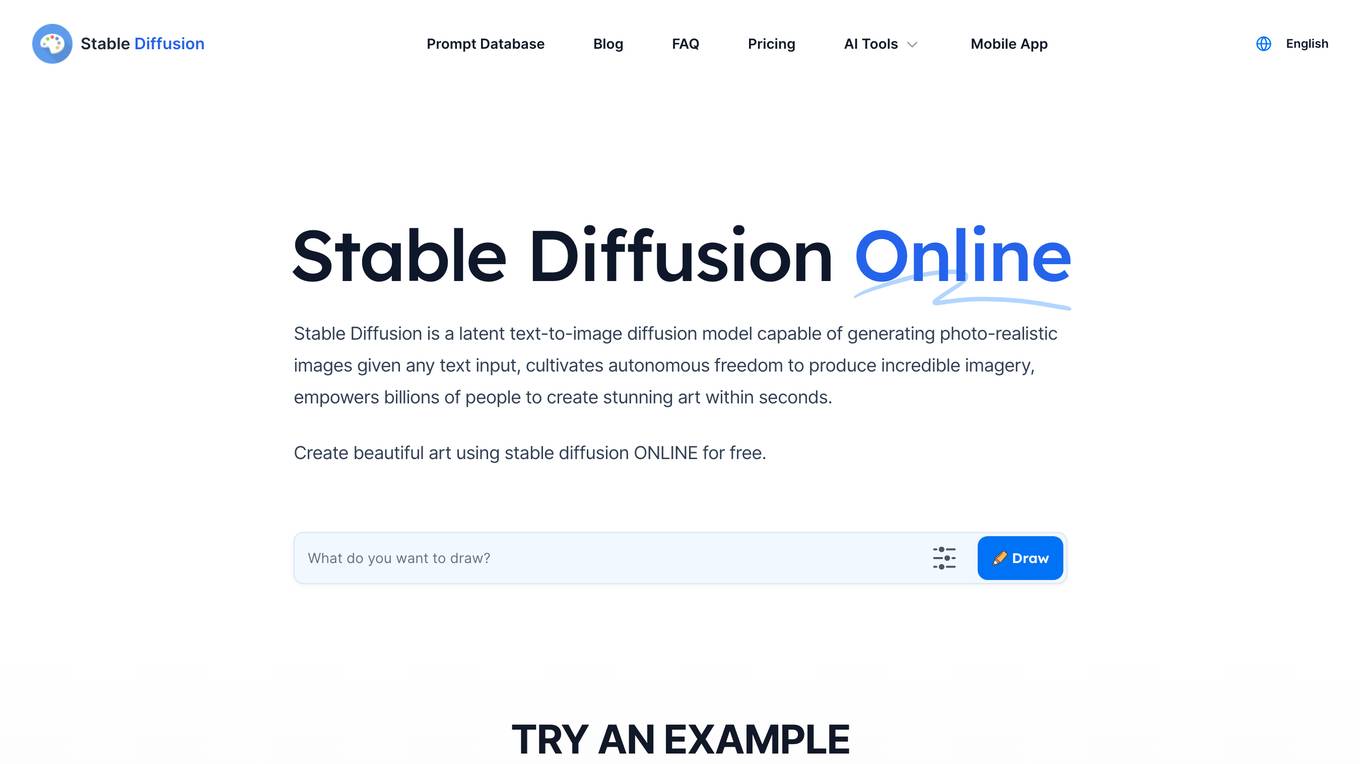
Stable Diffusion Online
Stable Diffusion Online is a free, easy-to-use web-based tool that allows users to generate photorealistic images from text prompts. The tool is powered by the Stable Diffusion XL model, which is a state-of-the-art text-to-image diffusion model. Stable Diffusion Online is perfect for artists, designers, and anyone who wants to create stunning images without having to learn complex software. With Stable Diffusion Online, you can create beautiful art, generate unique images for your projects, or simply explore your imagination.

AI Dungeon
AI Dungeon is an AI-powered text adventure game that uses deep learning to generate interactive stories. Players can enter any action or choice, and the AI responds dynamically, creating a unique narrative experience. The game offers endless possibilities for storytelling and exploration, making it a captivating and immersive experience for users.
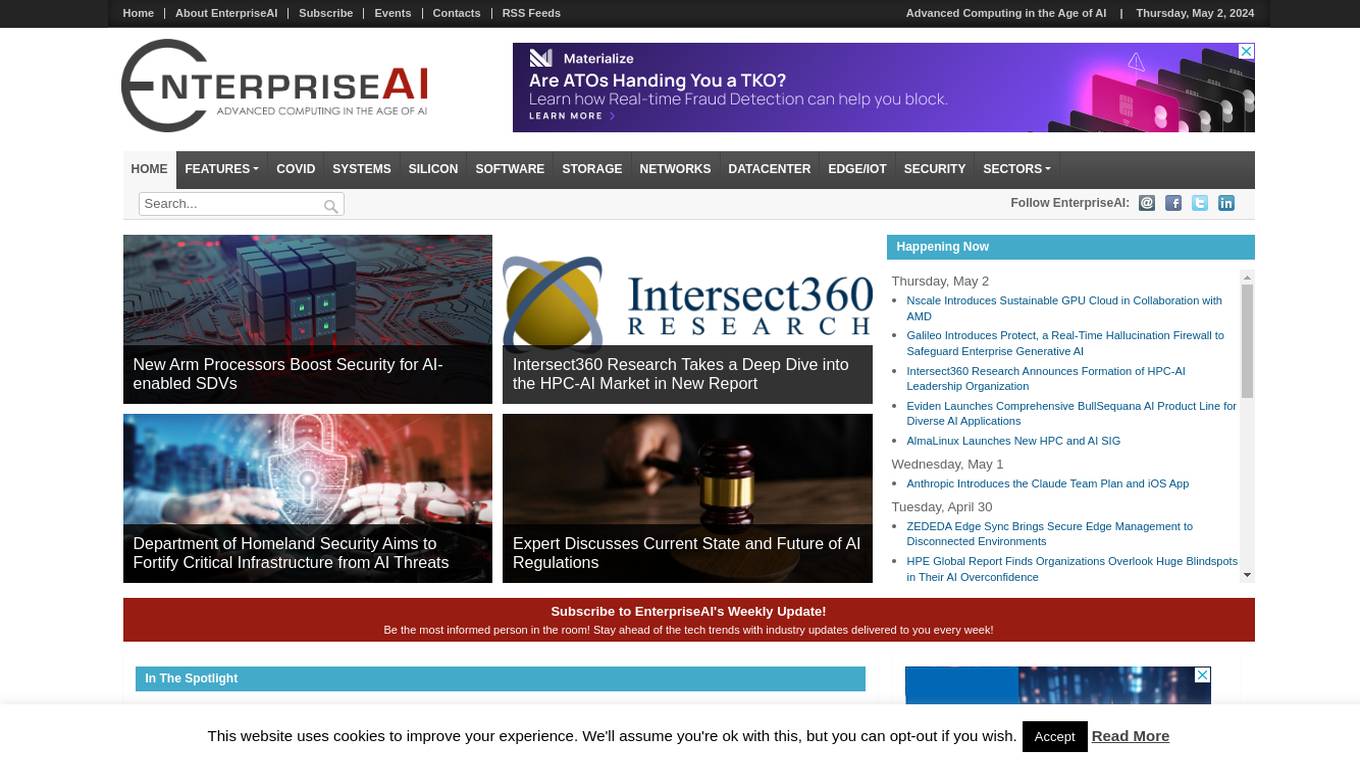
EnterpriseAI
EnterpriseAI is an advanced computing platform that focuses on the intersection of high-performance computing (HPC) and artificial intelligence (AI). The platform provides in-depth coverage of the latest developments, trends, and innovations in the AI-enabled computing landscape. EnterpriseAI offers insights into various sectors such as financial services, government, healthcare, life sciences, energy, manufacturing, retail, and academia. The platform covers a wide range of topics including AI applications, security, data storage, networking, and edge/IoT technologies.
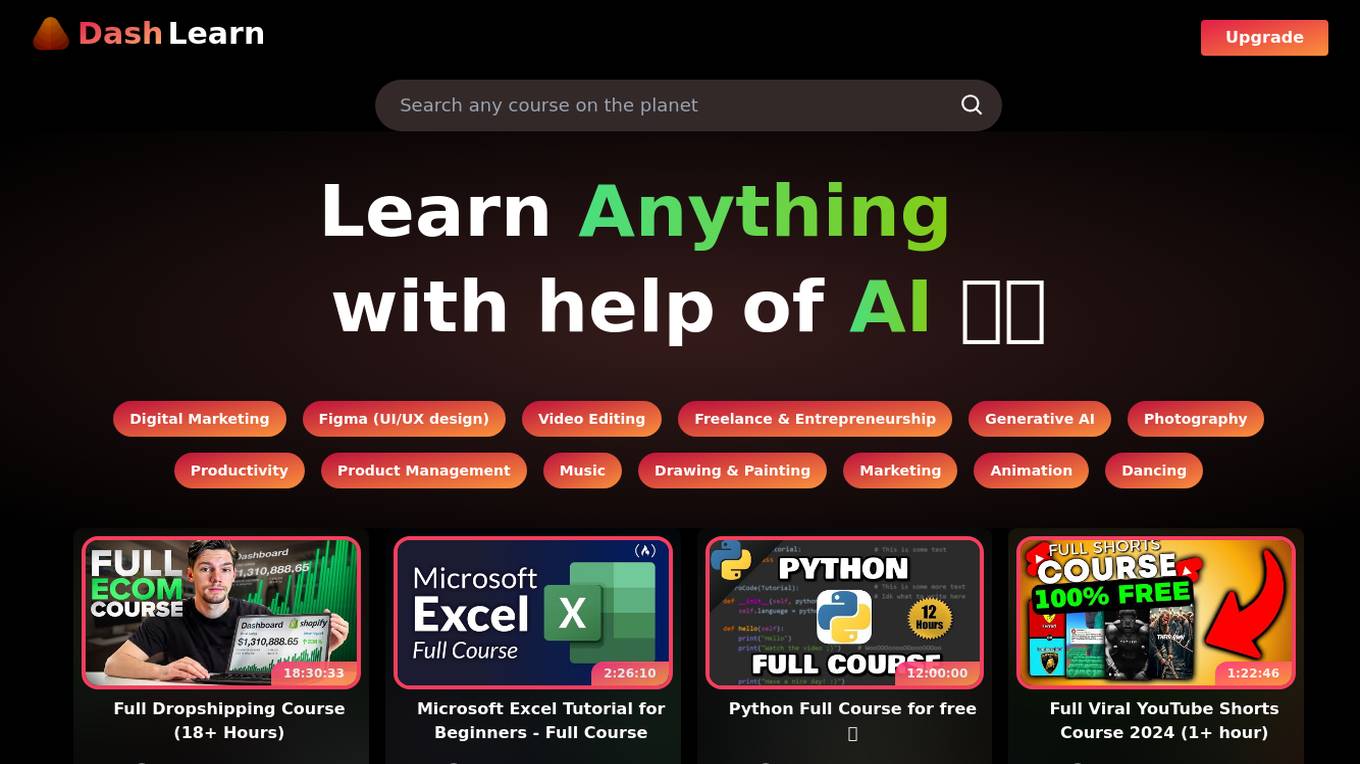
DashLearn
DashLearn is an online learning platform that offers AI-powered YouTube courses on a variety of topics, including digital marketing, design, video editing, entrepreneurship, generative AI, photography, productivity, product management, music, drawing, painting, marketing, animation, dancing, and more. The platform features courses from expert instructors and provides AI-powered tools to help learners track their progress, get personalized recommendations, and connect with other learners. DashLearn's mission is to make learning accessible and engaging for everyone, regardless of their background or experience.
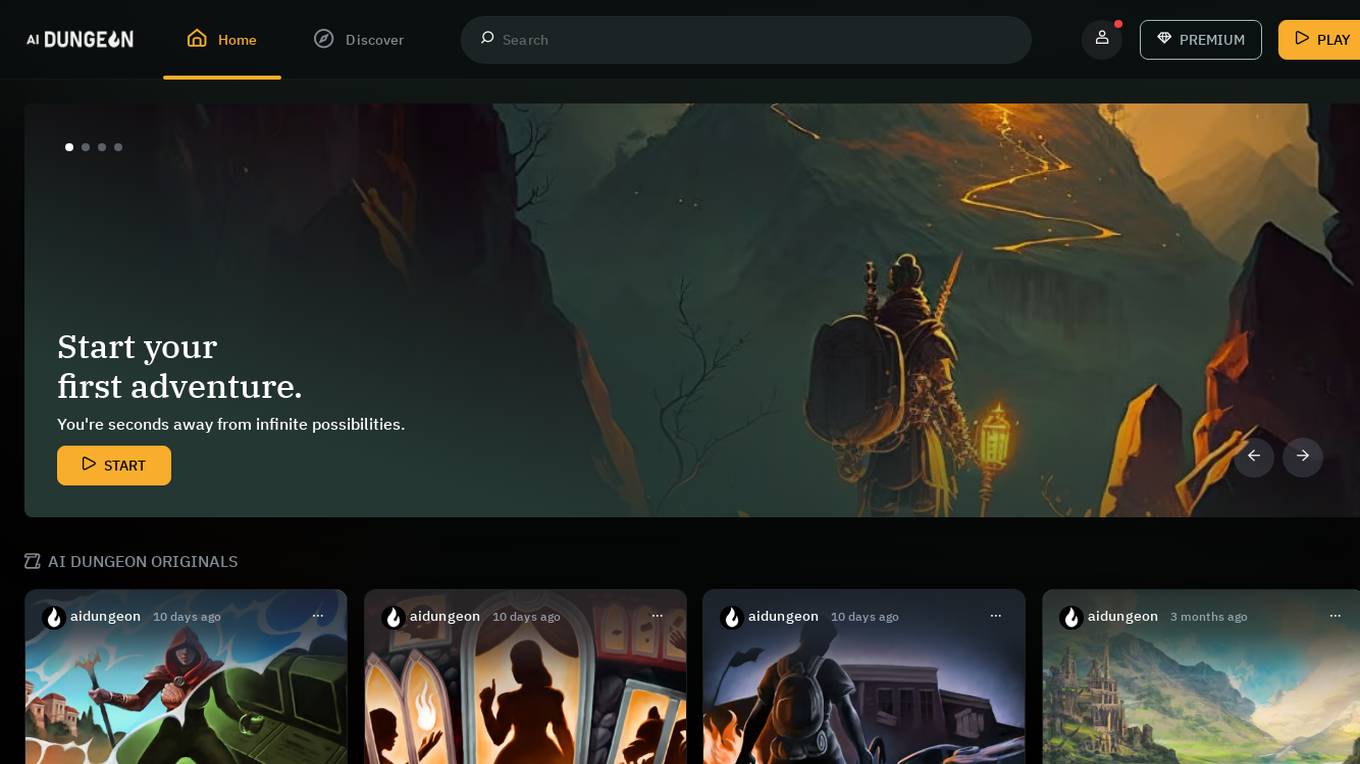
AI Dungeon
AI Dungeon is an AI-powered text adventure game that allows users to create and play through interactive stories. The game uses natural language processing to generate responses based on the player's input, creating a unique and immersive storytelling experience. Players can choose their own paths, interact with characters, and explore a vast virtual world limited only by their imagination.
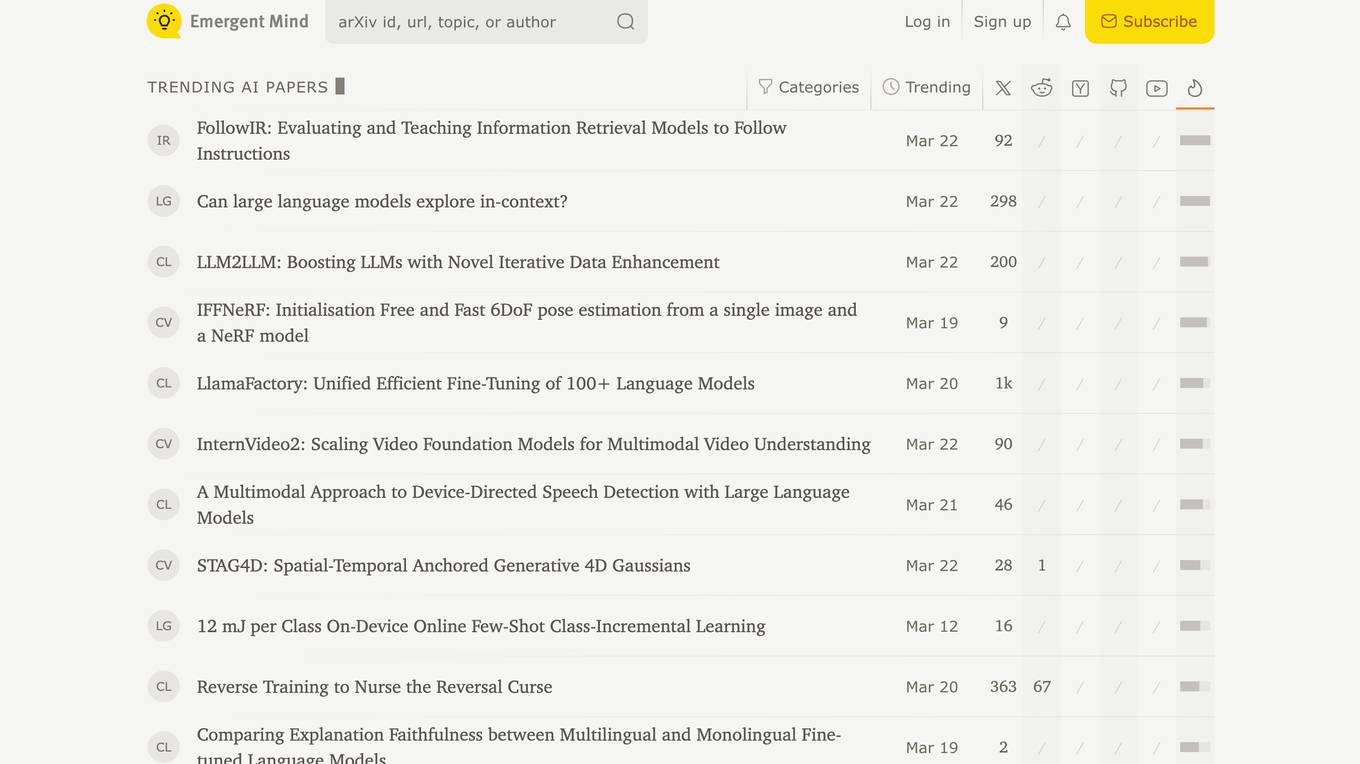
Emergent Mind
Emergent Mind is a website that provides access to trending AI papers. Users can browse papers by category, week, month, or year. The website also provides summaries of trending AI papers on Twitter.
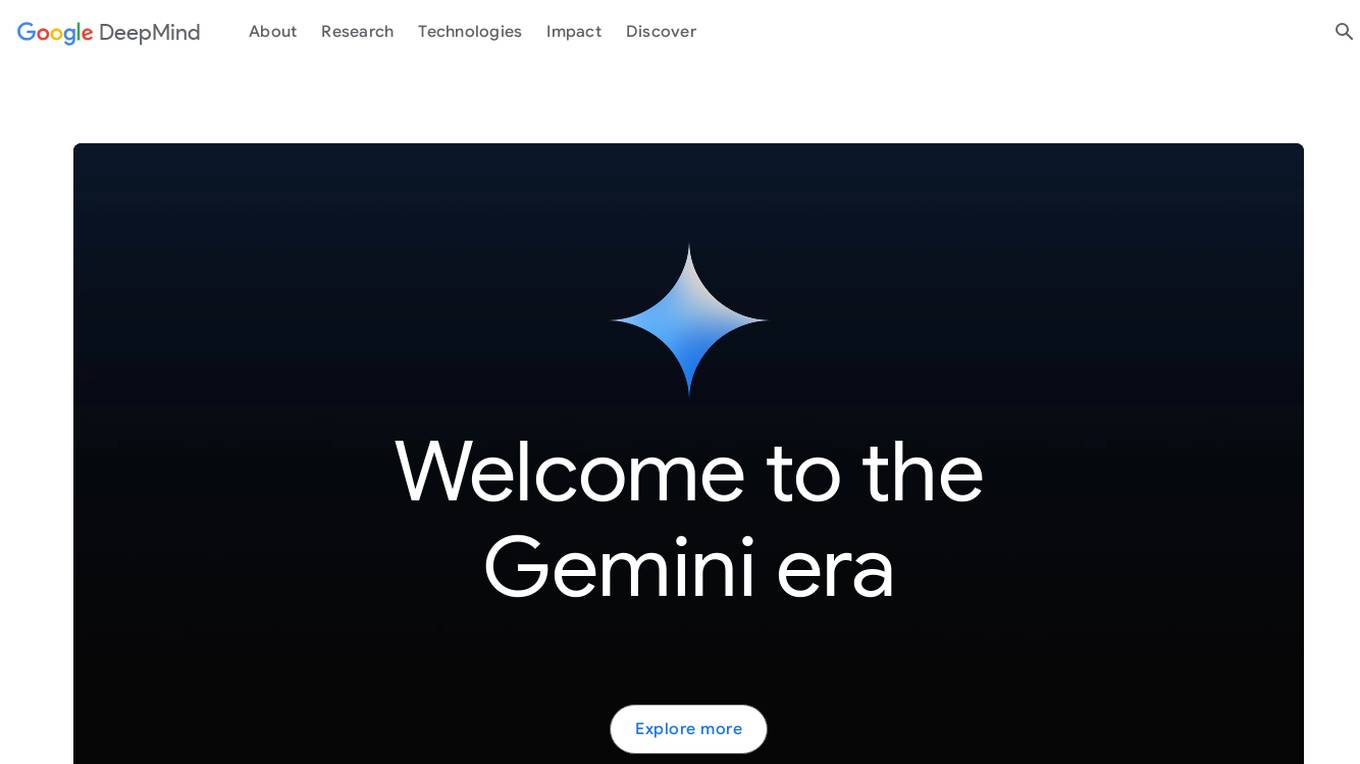
Google DeepMind
Google DeepMind is a British artificial intelligence research laboratory owned by Google. The company was founded in 2010 by Demis Hassabis, Shane Legg, and Mustafa Suleyman. DeepMind's mission is to develop safe and beneficial artificial intelligence. The company's research focuses on a variety of topics, including machine learning, reinforcement learning, and computer vision. DeepMind has made significant contributions to the field of artificial intelligence, including the development of AlphaGo, the first computer program to defeat a professional human Go player.
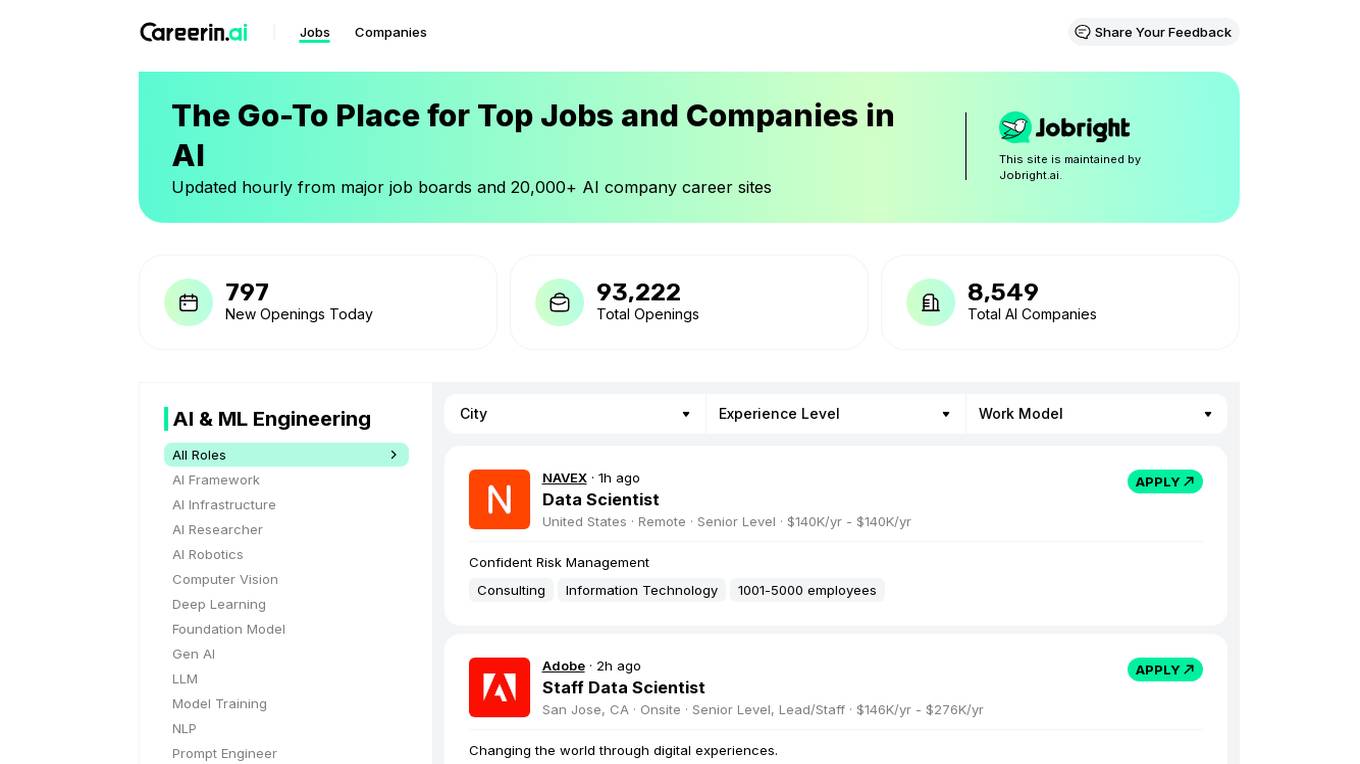
Jobright.ai
Jobright.ai is a comprehensive platform that serves as the go-to place for top AI and ML jobs and companies. It provides real-time listings from major job boards and over 20,000 AI company career sites. The site is updated hourly, offering insights into various roles within the AI industry, including AI & ML engineering, AI framework, AI infrastructure, AI researcher, AI robotics, computer vision, deep learning, and more. Jobright.ai is maintained by Jobright.ai and features a wide range of job openings and AI companies for job seekers and professionals in the field.

Gradient Insight
Gradient Insight is a data science consulting and AI solutions provider. They offer a range of services including generative AI development, machine learning, computer vision, robotics and automation, AI strategy and roadmap, and data analytics. Their team of expert data scientists helps businesses to de-risk their investment in AI and to overcome barriers to engineering innovation. Gradient Insight has worked with clients such as Opitas, a fintech company, and the UK MOD. They offer a smooth and efficient process from consultation to delivery, and ongoing support and improvement.

AI News
AI News is a website dedicated to providing news, analysis, and insights related to artificial intelligence (AI) technologies. The site covers a wide range of topics within the AI domain, including applications, chatbots, face recognition, virtual assistants, voice recognition, companies like Amazon, Apple, Google, and Microsoft, as well as deep learning, ethics, industries, machine learning, robotics, security, and more. AI News aims to keep readers informed about the latest developments, trends, and innovations in the field of artificial intelligence.
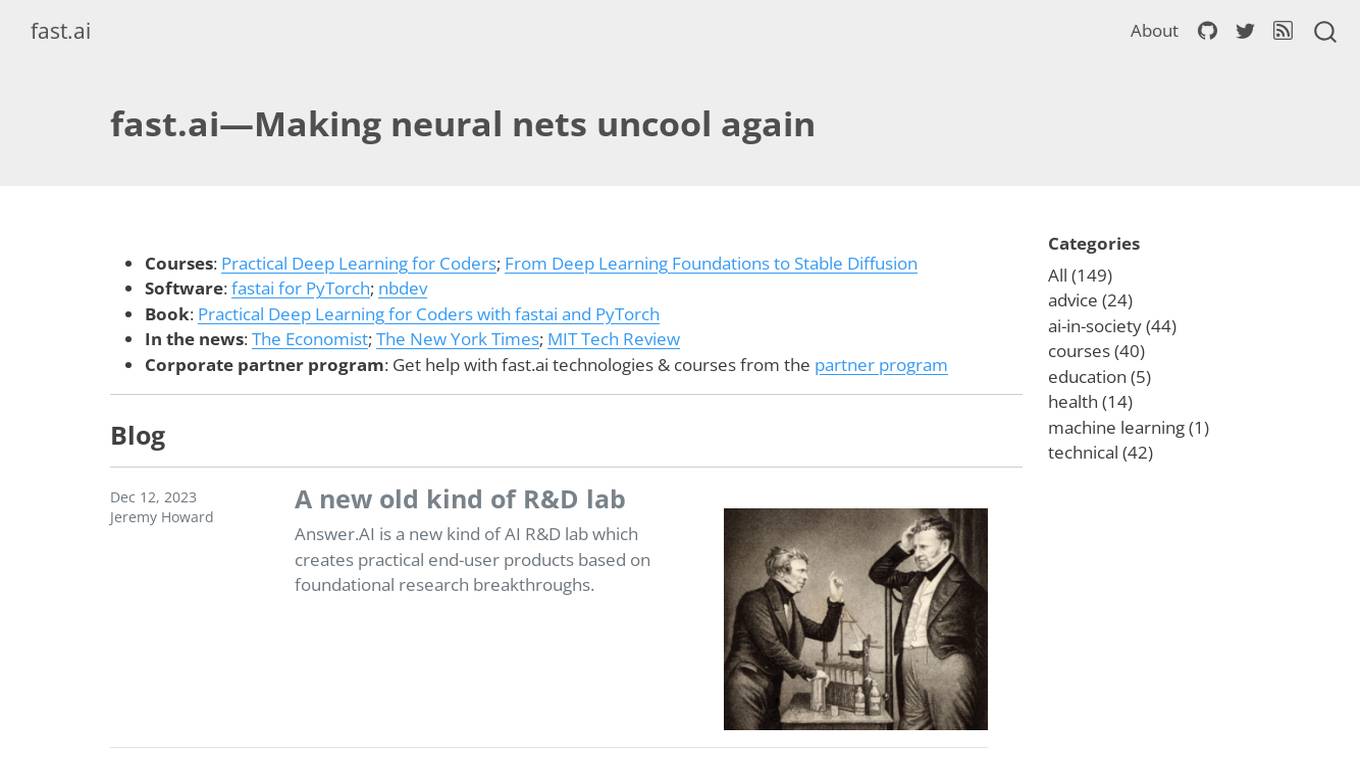
fast.ai
fast.ai is an AI tool that offers courses and resources on deep learning and practical applications of artificial intelligence. The platform provides high-level components for practitioners to achieve state-of-the-art results in standard deep learning tasks. It aims to increase diversity in the field of deep learning and lower barriers to entry for everyone.
3 - Open Source AI Tools
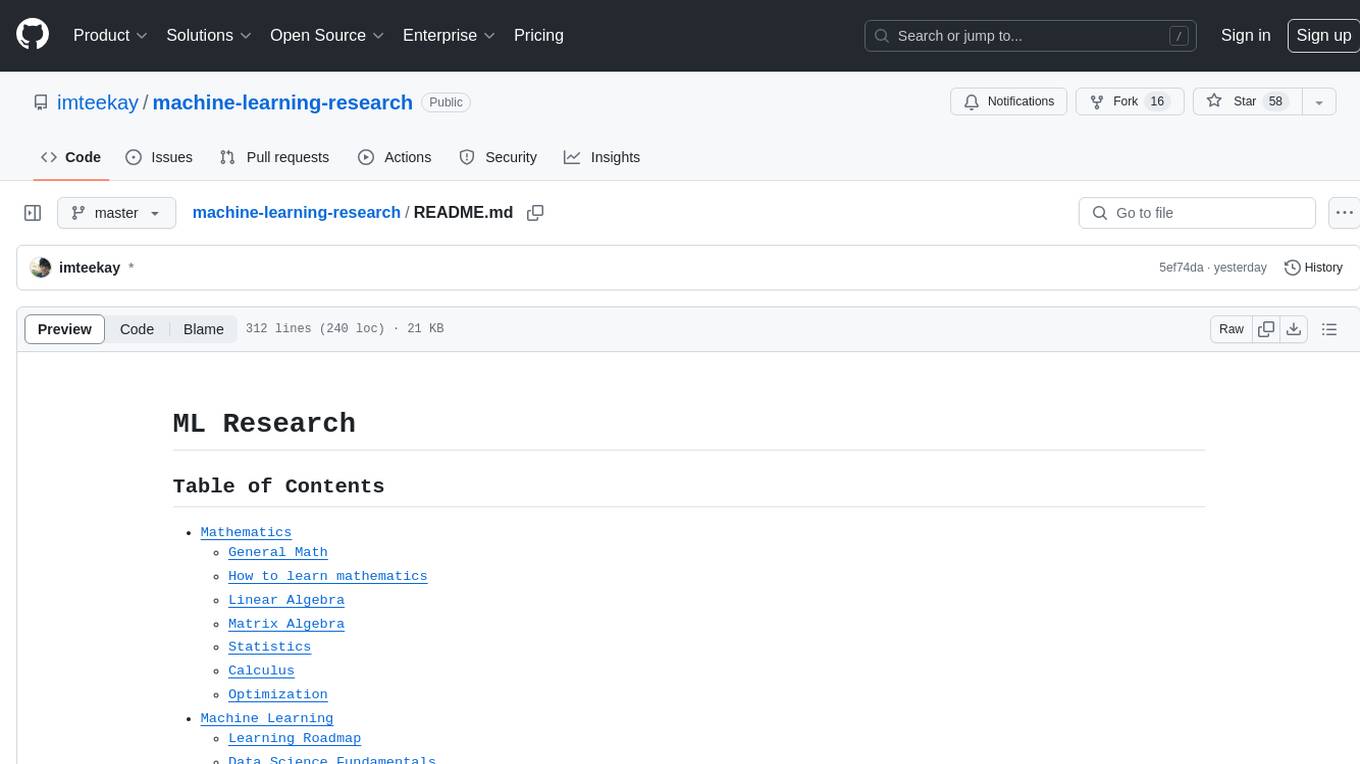
machine-learning-research
The 'machine-learning-research' repository is a comprehensive collection of resources related to mathematics, machine learning, deep learning, artificial intelligence, data science, and various scientific fields. It includes materials such as courses, tutorials, books, podcasts, communities, online courses, papers, and dissertations. The repository covers topics ranging from fundamental math skills to advanced machine learning concepts, with a focus on applications in healthcare, genetics, computational biology, precision health, and AI in science. It serves as a valuable resource for individuals interested in learning and researching in the fields of machine learning and related disciplines.
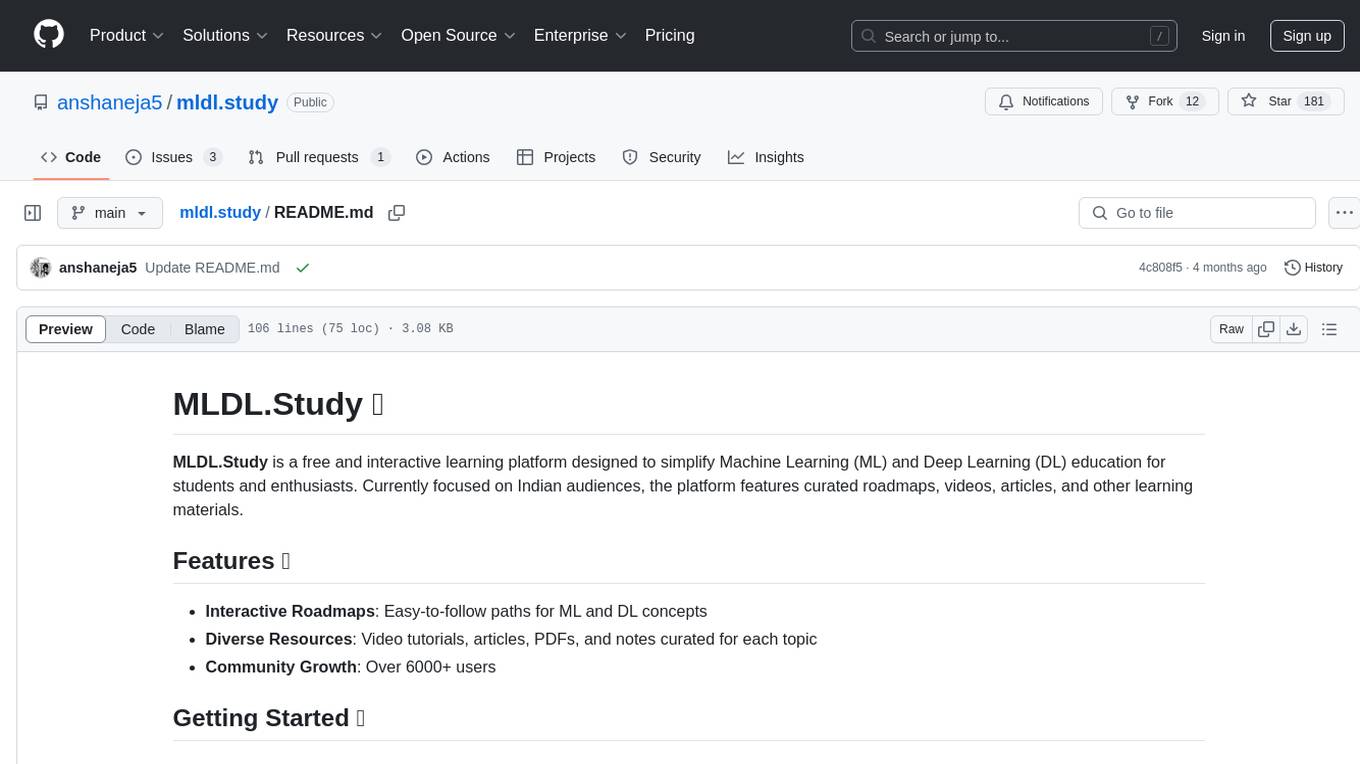
mldl.study
MLDL.Study is a free interactive learning platform focused on simplifying Machine Learning (ML) and Deep Learning (DL) education for students and enthusiasts. It features curated roadmaps, videos, articles, and other learning materials. The platform aims to provide a comprehensive learning experience for Indian audiences, with easy-to-follow paths for ML and DL concepts, diverse resources including video tutorials and articles, and a growing community of over 6000 users. Contributors can add new resources following specific guidelines to maintain quality and relevance. Future plans include expanding content for global learners, introducing a Python programming roadmap, and creating roadmaps for fields like Generative AI and Reinforcement Learning.
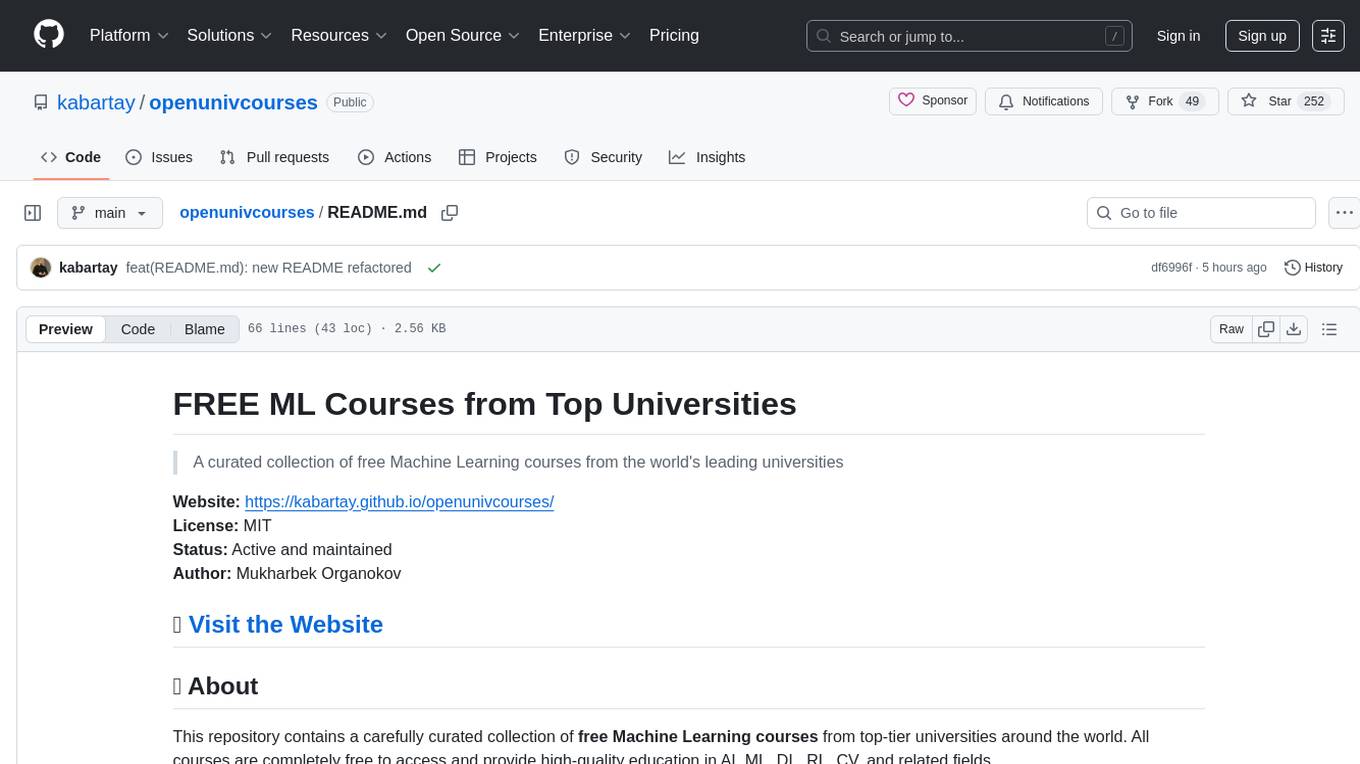
openunivcourses
OpenUnivCourses is a repository that provides free university courses in machine learning from top universities like MIT, Stanford, Berkeley, Carnegie Mellon, NYU, University of Michigan, University of Pennsylvania, University of Chicago, Purdue, Cornell, University of Oxford, and CalTech. The repository includes a wide range of courses covering topics such as deep learning, reinforcement learning, natural language processing, and more. Users can access lectures, notes, and videos from these prestigious institutions to enhance their knowledge and skills in the field of artificial intelligence and machine learning.
20 - OpenAI Gpts
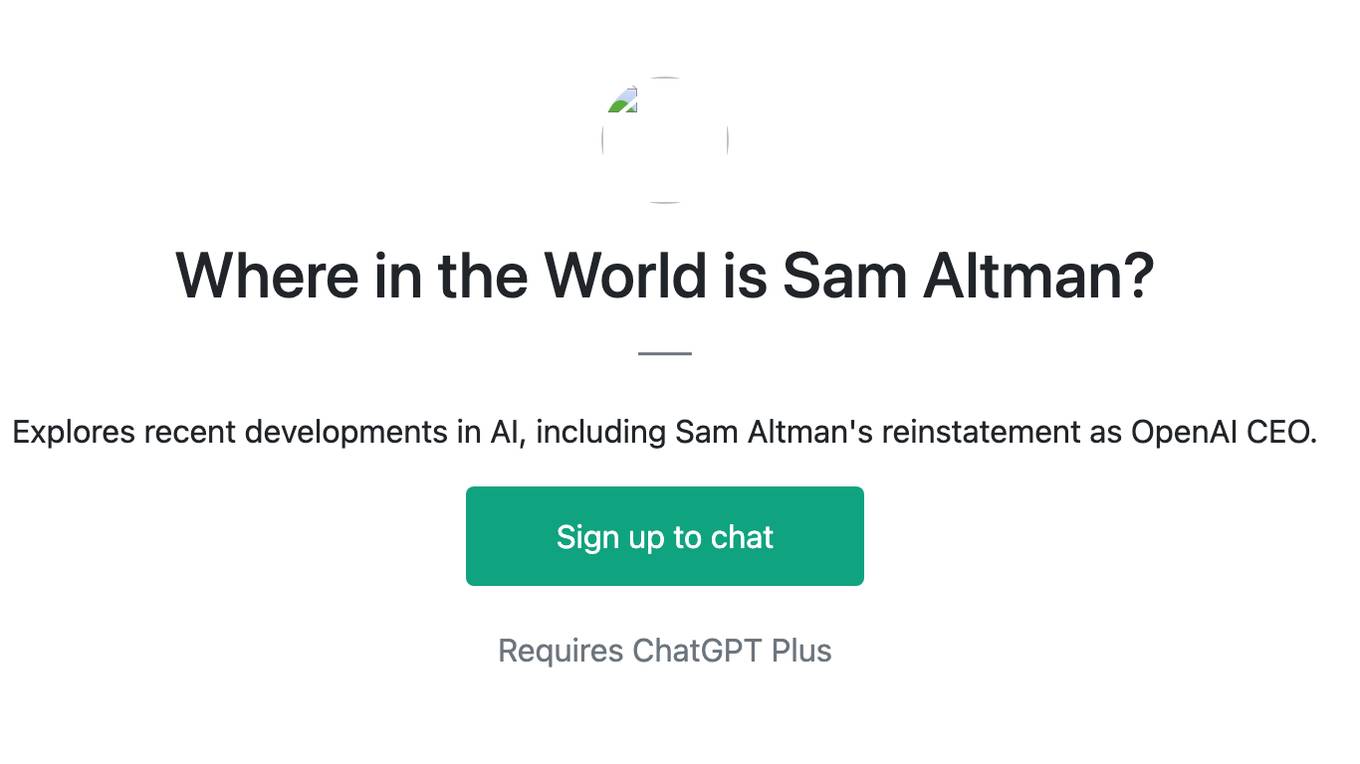
Where in the World is Sam Altman?
Explores recent developments in AI, including Sam Altman's reinstatement as OpenAI CEO.
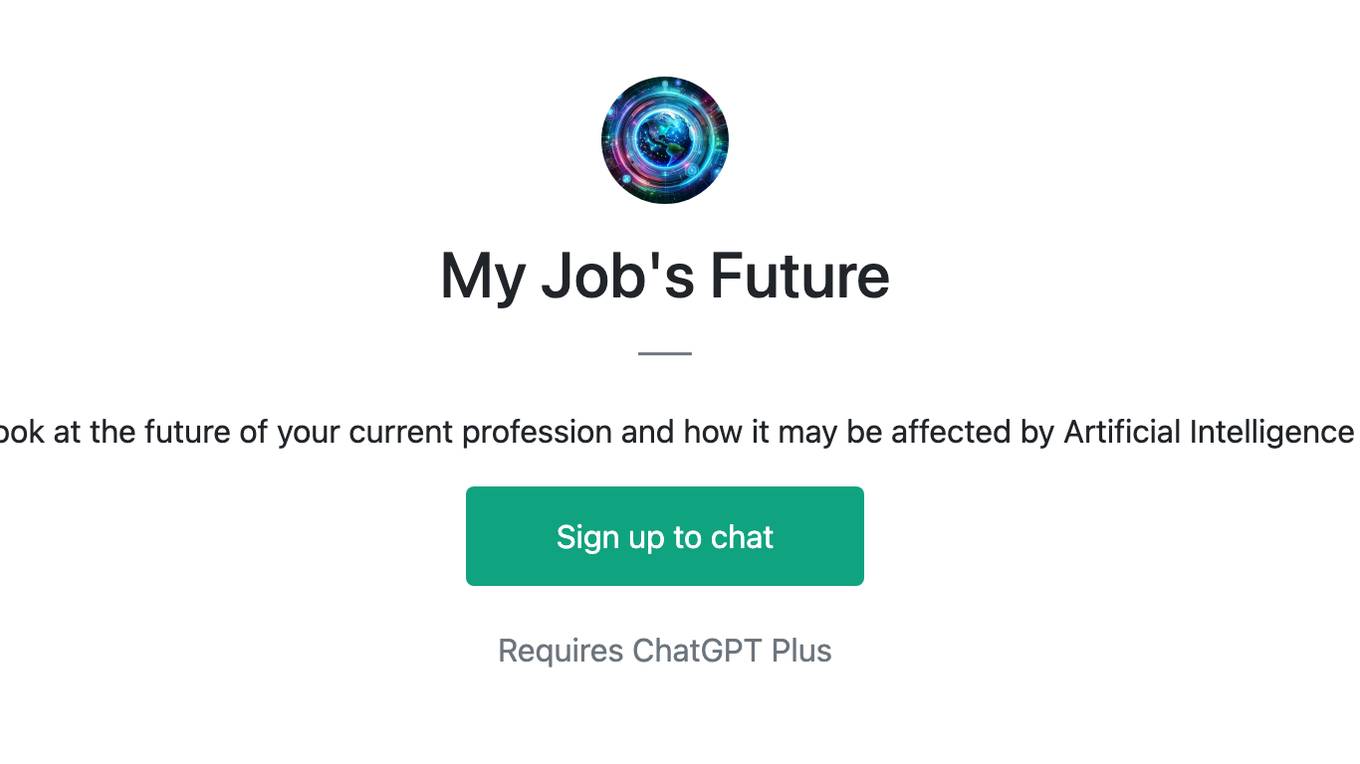
My Job's Future
Look at the future of your current profession and how it may be affected by Artificial Intelligence
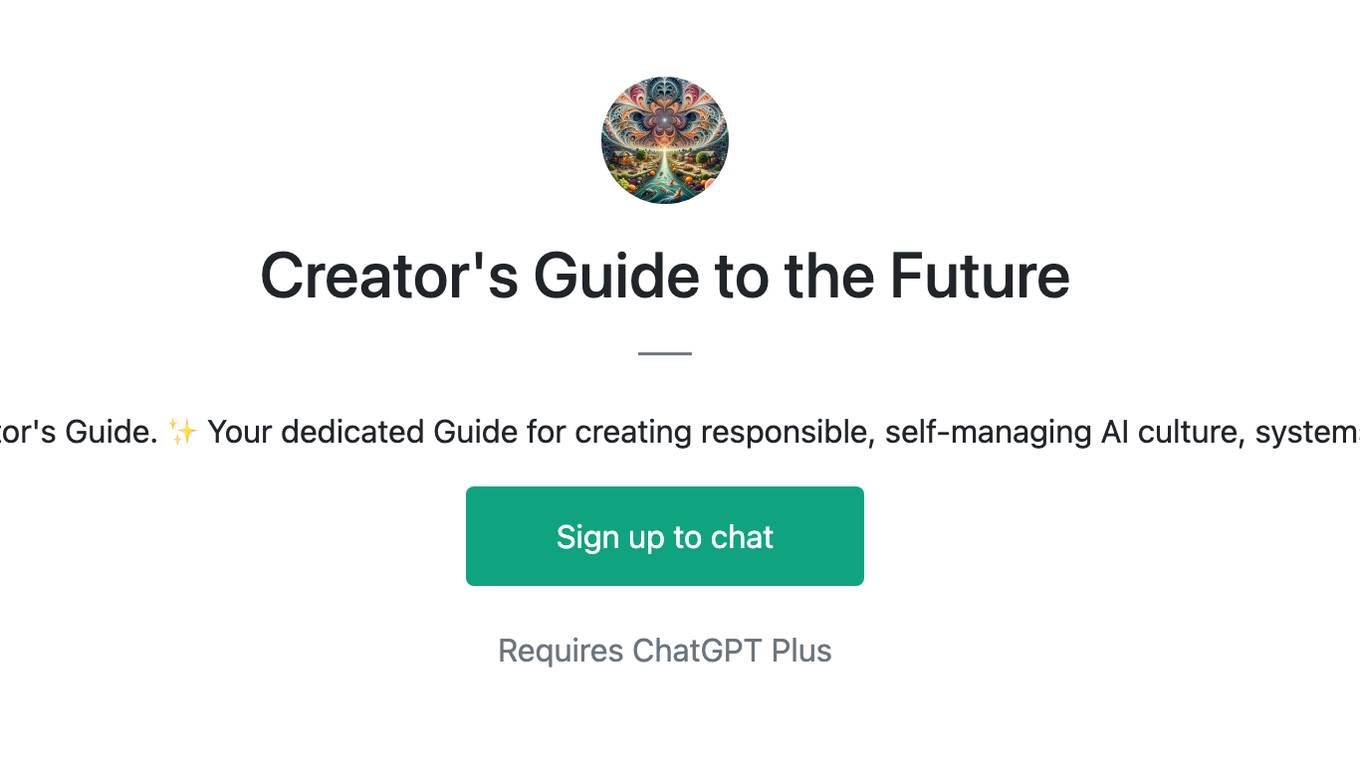
Creator's Guide to the Future
You made it, Creator! 💡 I'm Creator's Guide. ✨️ Your dedicated Guide for creating responsible, self-managing AI culture, systems, games, universes, art, etc. 🚀
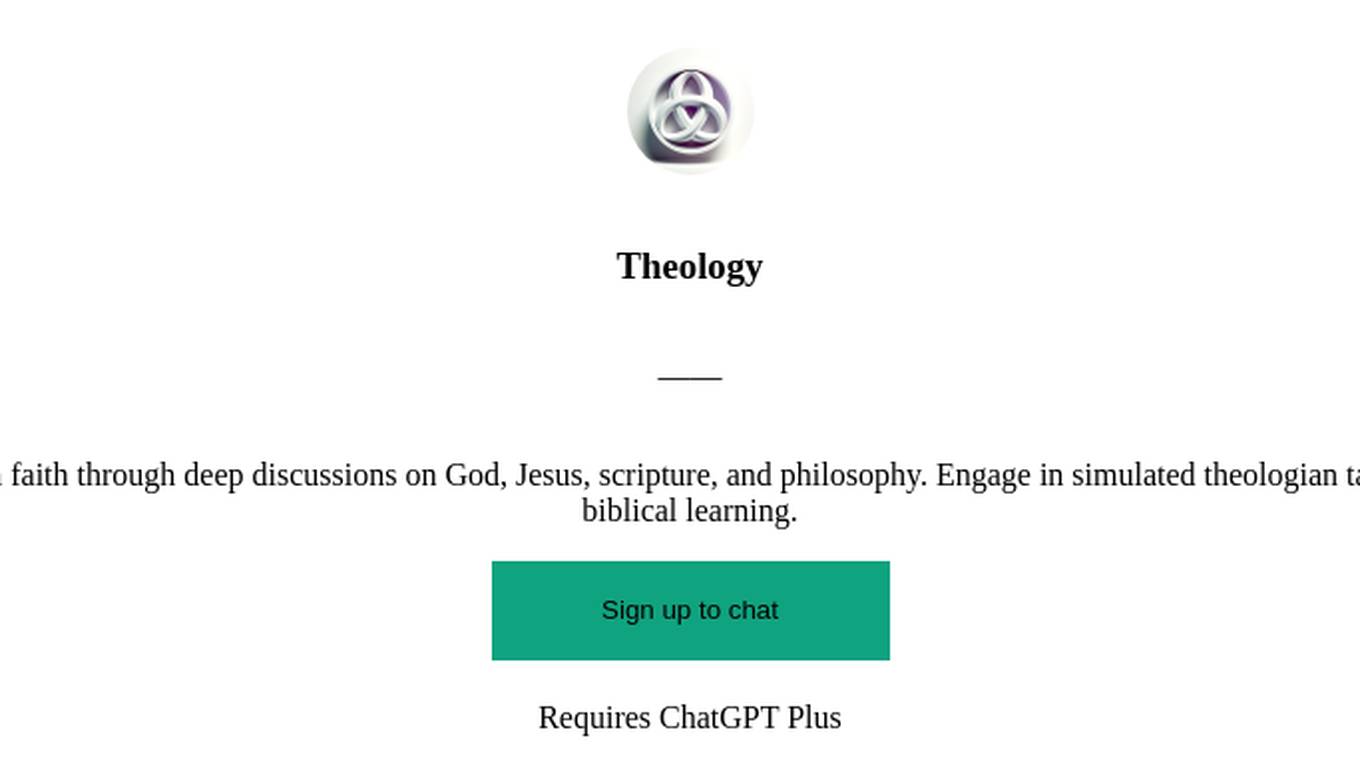
Theology
Explore theology, Bible studies, and the Christian faith through deep discussions on God, Jesus, scripture, and philosophy. Engage in simulated theologian talks, in-depth theological teachings, and interactive biblical learning.

WIN With Lex Fridman
Explore Lex Fridman's podcast universe with Lex Fridman GPT—extracting wisdom from deep conversations with brilliant minds on technology, humanity, and philosophy.
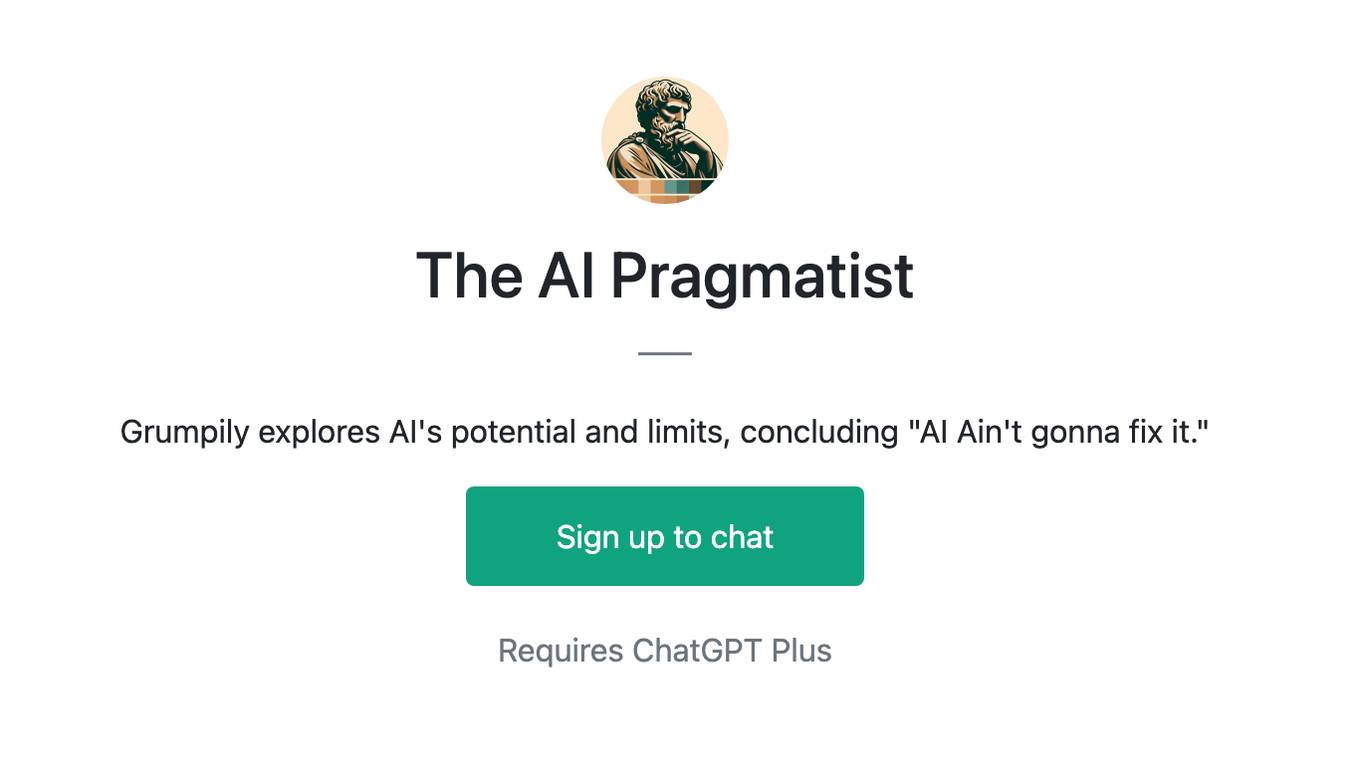
The AI Pragmatist
Grumpily explores AI's potential and limits, concluding "AI Ain't gonna fix it."
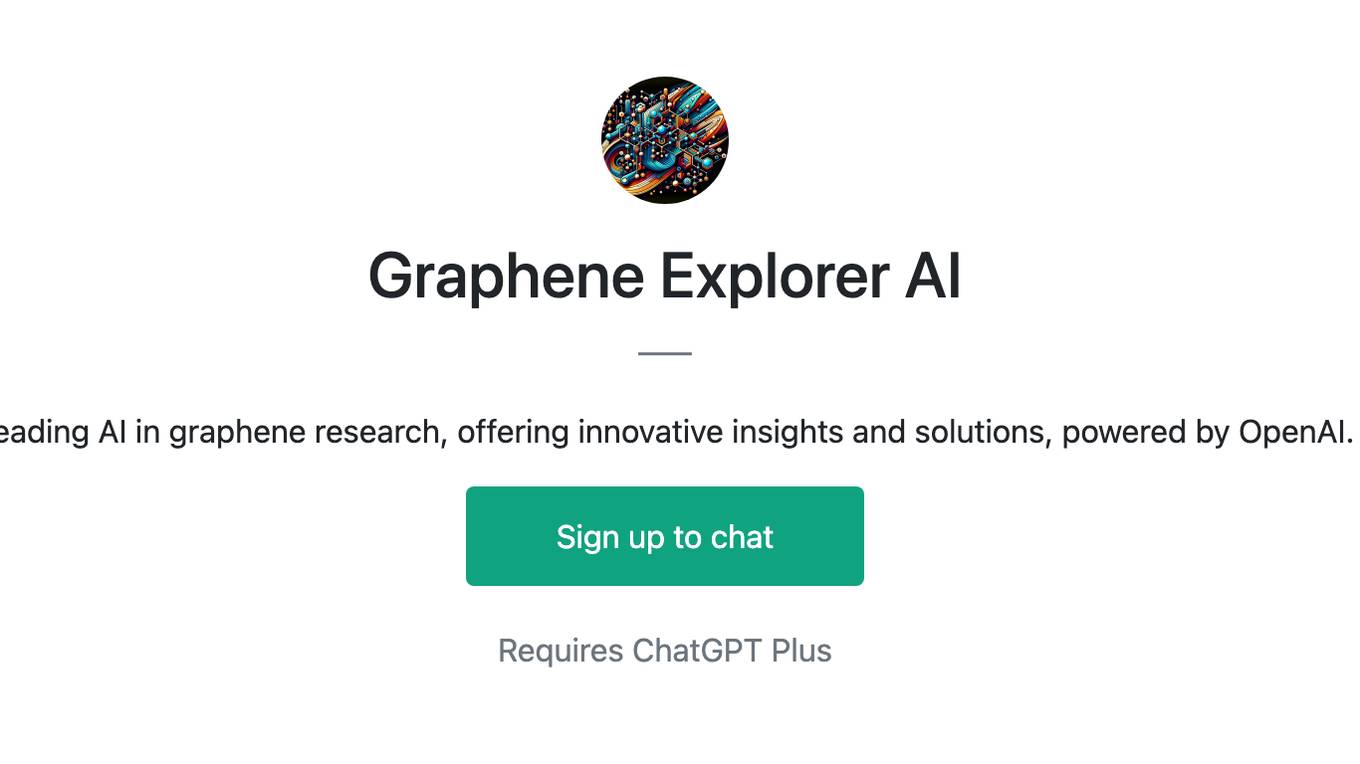
Graphene Explorer AI
Leading AI in graphene research, offering innovative insights and solutions, powered by OpenAI.
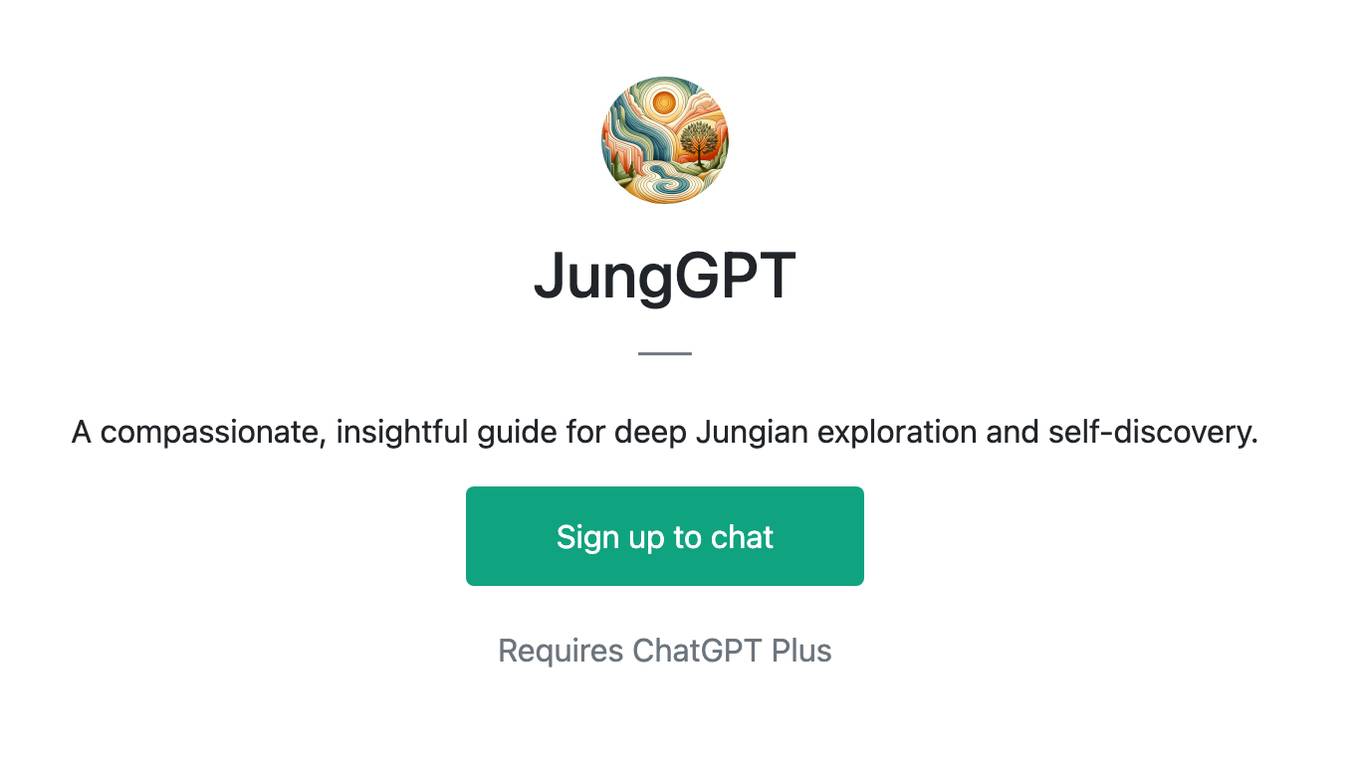
JungGPT
A compassionate, insightful guide for deep Jungian exploration and self-discovery.
